Planes de Manejo Pesquero Basados en Islas
Island-Based Fishery Management Plans


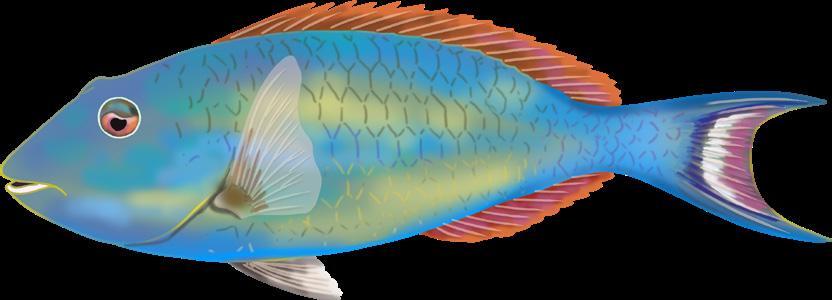


Caribbean Fishery Management Council



2024 CALENDARIO | CALENDAR

Escanea el QR Code para acceder a / Scan the QR Code to access www.caribbeanfmc.com
Consejo de Administración Pesquera del Caribe
El Consejo de Administración Pesquera del Caribe (CFMC, por sus siglas en inglés) es uno de ocho consejos administrativos regionales establecidos bajo la Ley Magnuson-Stevens de 1976, para la Conservación y Administración de las Pesquerías, la cual maneja la Zona Económica Exclusiva (ZEE) que cubre desde 3 a 200 millas náuticas de las costas de las Islas Vírgenes Estadounidenses
(St. Croix, St. Thomas y St. John) y desde 9 a 200 millas náuticas de la costa de Puerto Rico. La responsabilidad principal del CFMC es desarrollar planes de administración pesquera (FMPs, por sus siglas en inglés) al igual que preparar las enmiendas necesarias a estos FMPs, y proveer recomendaciones sobre la reglamentación a NOAA Fisheries y al Secretario del Comercio de los Estados Unidos. El CFMC consiste de
7 miembros votantes y 3 miembros no votantes, quienes se reúnen al menos tres veces al año para discutir asuntos relacionados a la pesca en el Caribe Estadounidense. El CFMC recibe recomendaciones de los paneles asesores, comités científicos y del público en general, relacionadas a la administración apropiada y a la conservación de los recursos marinos.




Caribbean Fishery Management Council



Caribbean Fishery Management Council
The Caribbean Fishery Management Council (CFMC) is one of eight regional fishery management councils established by the Magnuson-Stevens Fishery Conservation and Management Act in 1976. It manages the Exclusive Economic Zone (EEZ), which covers from 3 to 200 nautical miles (nm) off the coasts of the USVI (St. Croix,
St. Thomas, and St. John) and 9 to 200 nm off the coast of Puerto Rico. The CFMC’s major responsibility is the development of fishery management plans (FMPs). However, the Council also prepares amendments for said FMPs and recommends regulations to NOAA Fisheries and the U.S. Secretary of Commerce. The Council consists
of 7 voting members and 3 nonvoting members, who meet at least three times a year to discuss fishery issues of the U.S. Caribbean. The CFMC receives input from advisory panels, scientific committees and the general public for the appropriate management and conservation of the marine resources.
Caribe Estadounidense U.S. Caribbean
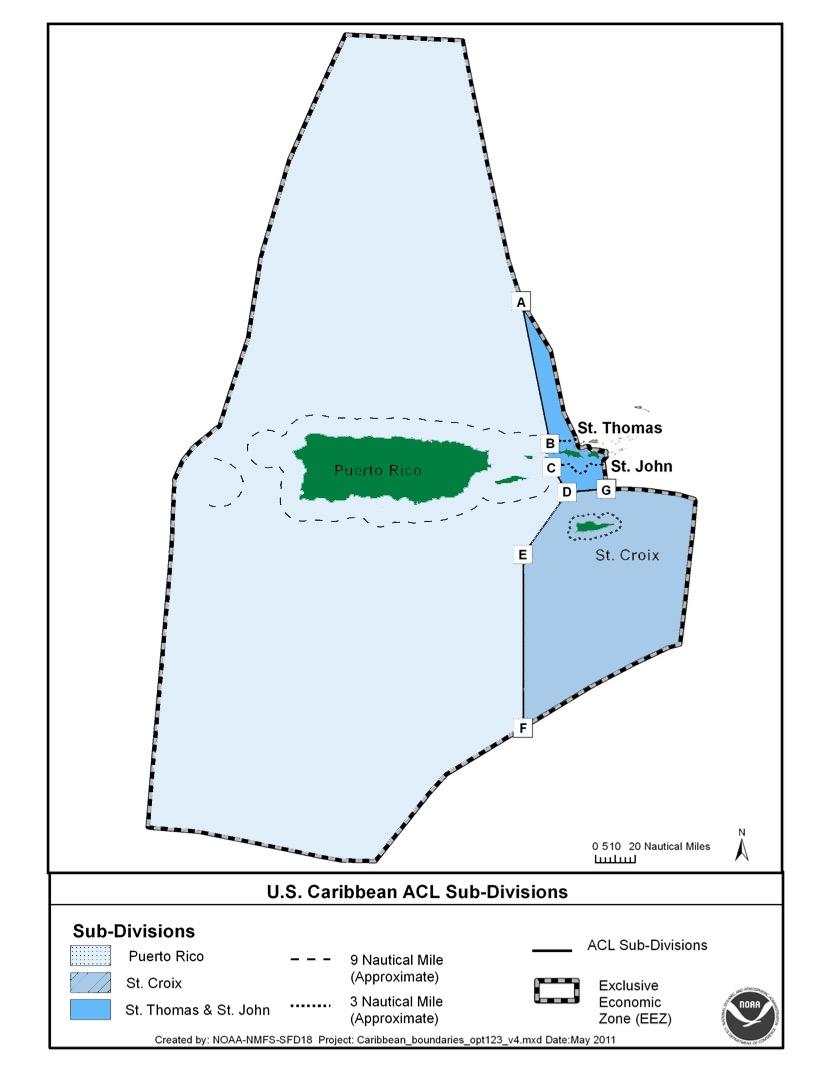

Leyenda / Legend
Subdivisiones / Subdivisions
Puerto Rico
St. Croix
St. Thomas/St. John
- - - desde 9 millas náuticas (aproximadas) from 9 nautical miles (approximated)
..... 3 millas náuticas (aproximadas)
3 nautical miles (approximated)
Subdivisiones
Sub-Divisions
Zona Económica Exclusiva
Exclusive Economic Zone
Coordenadas / Coordinates
A E G F D C B Latitud Norte North Latitude Longitud Oeste West Longitude 19° 37’ 29” 65° 20’ 57” 18° 25’ 46.3015” 65° 06’ 31.866” 18° 13’ 59.0606” 65° 05’ 33.058” 18° 01’ 16.9636” 64° 57’ 38.817”
02’ 53.5812” 65° 20’ 00.1716” 17° 30’ 00.000” 65° 20’ 00.1716” 18° 03’ 03” 64° 38’ 03”
16°
Planes de Manejo Pesquero Basados en Islas
Island-Based Fishery Management Plans
Los Planes de Manejo Pesquero Basados en Islas (IBFMPs, por sus siglas en inglés) son los nuevos planes de manejo para las pesquerías del Caribe Estadounidense. Hay tres planes de manejo pesquero separados: uno para Puerto Rico , uno para St. Thomas/ St. John y uno para St. Croix . Para cada una de estas áreas, existen medidas de manejo para los peces de arrecife, los peces pelágicos, la langosta espinosa y el carrucho, entre otros, incluyendo los arrecifes de coral y las plantas e invertebrados asociados.
The Island-Based Fishery Management
Plans are the new management plans for the US Caribbean fisheries. There are three (3) separate fishery management plans: one for Puerto Rico , one for St. Thomas/St. John and one for St. Croix . For each of these areas, there are management measures for reef fishes, spiny lobster, and queen conch, among others, including coral reefs and associated plants and invertebrates.
¿Qué especies están cubiertas en los IBFMPs?
Los IBFMPs incluyen 81 especies de peces de arrecife, 58 especies de peces comerciales para acuarios, la langosta espinosa, el carrucho, 94 especies de corales y 63 especies de invertebrados comerciales para acuarios. El Comité Científico y Estadístico (SSC) del Consejo de Administración Pesquera del Caribe (CFMC, por sus siglas en inglés) y los Paneles Asesores de Distrito (DAPs) proporcionaron recomendaciones sobre los criterios utilizados por el CFMC para seleccionar las especies manejadas en los IBFMPs.

What species are covered in the IBFMPs?
The IBFMPs include 81 species of reef fish, 58 species of aquarium trade fish, spiny lobster, queen conch, 94 species of corals, and 63 species of aquarium trade invertebrates. The Council’s Scientific and Statistical Committee (SSC) and the District Advisory Panels (DAPs) provided recommendations on the criteria used for the Council to select the species to be managed under each island-based FMP.
¿Cuáles son los cambios en los nuevos IBFMPs?
Cada uno de los IBFMPs conserva la mayoría de las medidas de manejo establecidas bajo los planes de manejo pesquero para todo el Caribe Estadounidense. Estos planes se aplican al área de manejo de cada isla, incluyendo los cierres por temporada y de área, los límites de tamaño mínimo y los límites de captura. Los IBFMPs revisan ciertas medidas de manejo tales como las especies incluidas para el manejo federal, los límites de captura anual y las medidas de responsabilidad que podrían adaptarse para cada una de las áreas.

What are the changes in the new IBFMPs?
Each of the IBFMPs retains most of the management measures established under the U.S. Caribbean-wide fishery management plans that apply to the respective island management area, including seasonal and area closures, minimum size limits, and recreational bag limits. The IBFMPs revise certain management measures, such as the species included for Federal management, and annual catch limits and accountability measures that could be adapted for each one of the areas.
¿Cuáles son los beneficios de los IBFMPs?
NOAA Fisheries y el CFMC esperan que el enfoque insular para el manejo pesquero tenga en cuenta mejor las diferencias existentes entre las islas del Caribe Estadounidense con respecto a la cultura, los mercados, las artes de pesca utilizadas, las preferencias de productos del mar y los impactos ecológicos.
What are the benefits of the IBFMPs?
NOAA Fisheries and the CFMC expect the island-based approach to fisheries management to better account for the existing differences among the U.S. Caribbean islands with respect to culture, markets, fishing gear used, seafood preferences, and ecological impacts.
¿Qué encontrarán en este calendario?
Encontrarán información sobre los componentes que incorpora cada IBFMP, la localización de las pesquerías manejadas, las categorías de las poblaciones de peces en cada IBFMP y las metas y objetivos de estos planes a grandes rasgos. También, encontrarán ilustraciones de algunas de las especies más representativas de cada isla. Cada ilustración incluye los nombres comunes en español y en inglés, y el nombre científico.
What will you find in this calendar?
You will find information about the components that each IBFMP incorporates, the location of the managed fisheries, the categories of fish stocks by each IBFMP, and the goals and objectives of these plans in general terms. You also will find illustrations of some of the most iconic species in each island. Each illustration includes the common names in Spanish and English, and the scientific name.
Mapas de las AMPs bajo jurisdicción federal
MPAs Maps under Federal Jurisdiction
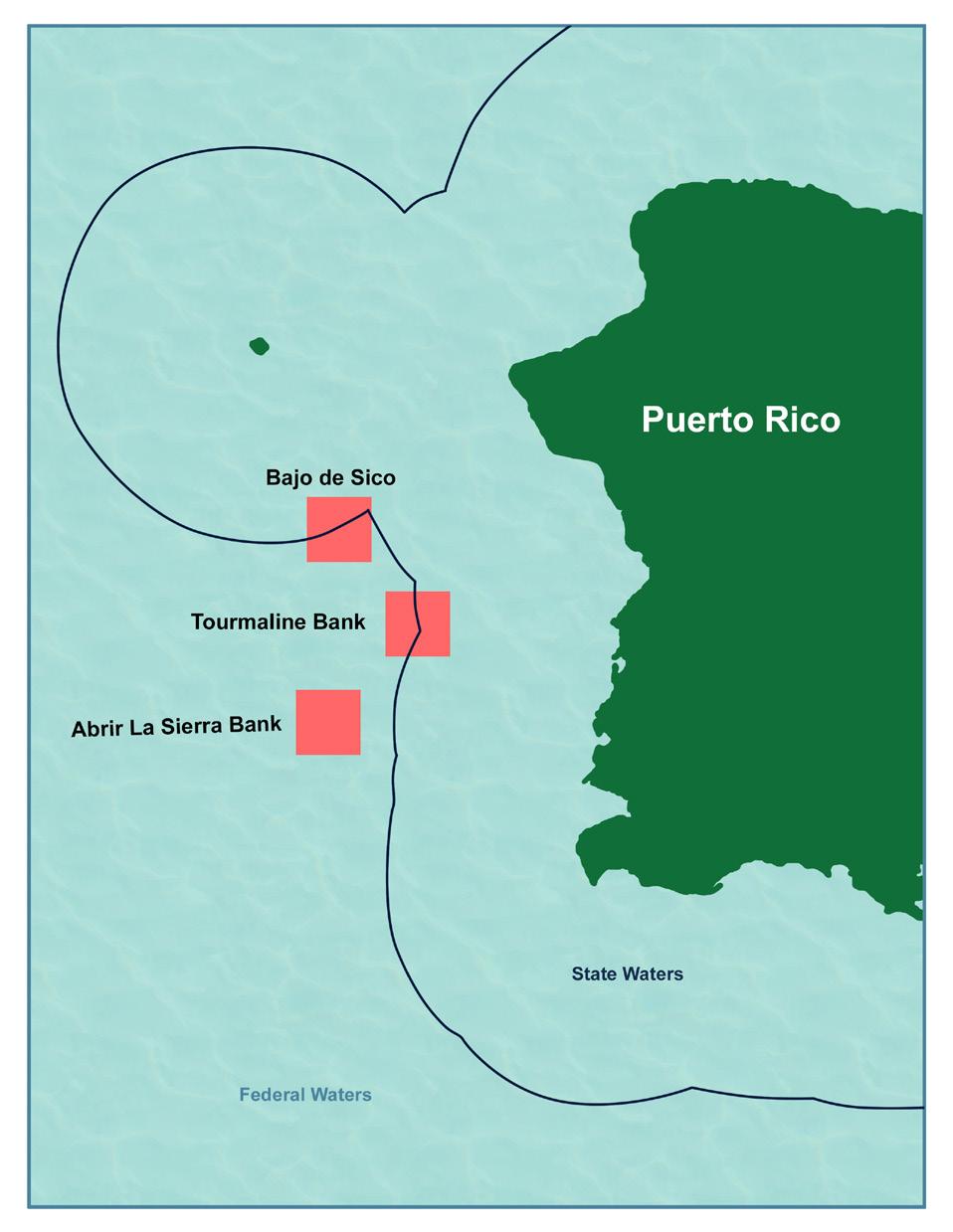
Puerto Rico:
• Bajo de Sico
• Tourmaline Bank
• Abrir la Sierra

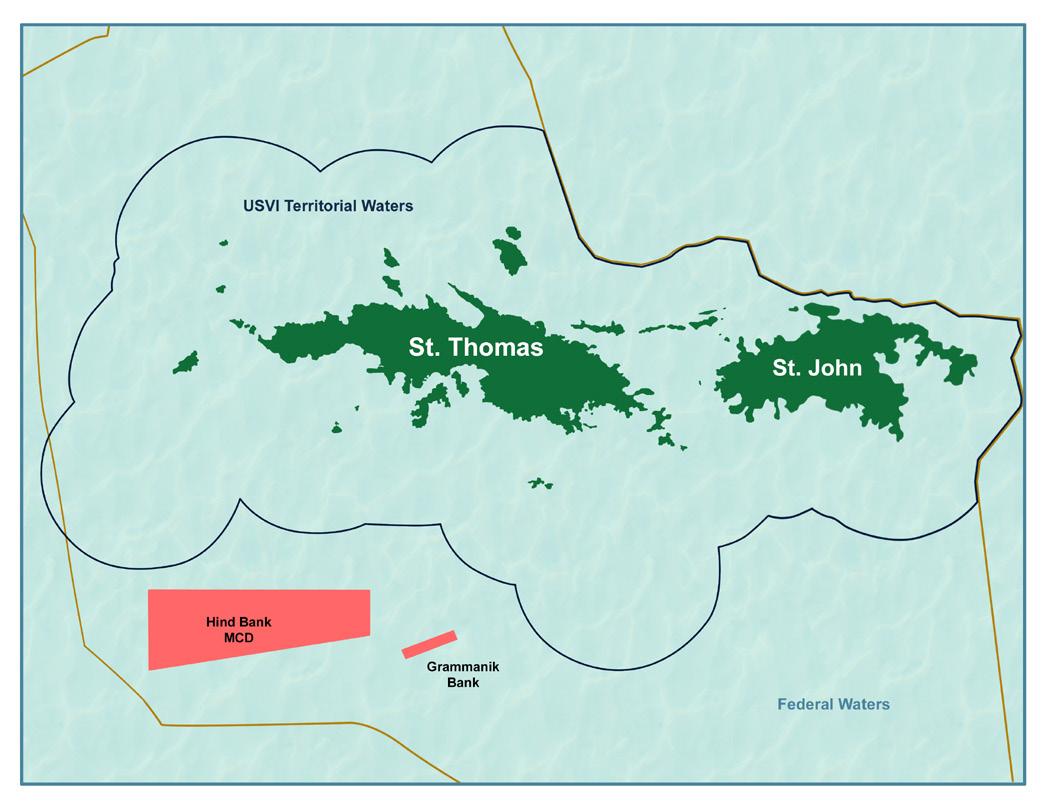
St. Croix:
• Mutton snapper
Spawning
• Red Hind (Lang Bank)
St. Thomas/St. John:
• Hind Bank
• Grammanik Bank

VEDAS SEASONAL CLOSURES

Aguas Federales (ZEE) Federal Waters (EEZ)
Todas las vedas aplican a pescadores comerciales y recreacionales. / All seasonal closures apply to commercial and recreational fishers.
Mero
† Red hind
Guajil
Yellowfin grouper
Mero negro
Black grouper
Diente de sable
Tiger grouper
Mero Rojo
Red grouper
Guajil amarillo
Yellowedge grouper
Sama
Mutton snapper
Arrayao
Lane snapper
Chillo
Silk snapper
Alinegra
Blackfin snapper
Chopa negra
Black snapper
Besugo
Vermillion snapper
Carrucho*
Queen conch
Mero batata
Goliath grouper
Mero cherna
Nassau grouper
Loro azul
Blue parrotfish








































































Leyenda: / Legend:
No capturar
No capture












Loro judío
Midnight parrotfish
Loro guacamayo
Rainbow parrotfish
























* Excepto al este de 64° 34’ O (St. Croix) / Except east of 64° 34’ W (St. Croix)
† Solo al oeste de 67° 10’ W (PR) / Only west of 67° 10’ W (PR)
Exclusión de responsabilidad legal/ Legal liability disclaimer
• Las regulaciones, vedas y restricciones que aparecen en este calendario son las existentes al momento de la impresión. Estas pueden cambiar en cualquier momento; para leyes y reglamentos oficiales consulte al Federal Register como recurso oficial federal y a las oficinas pertinentes de los Gobiernos Estatales. Federal Register http://www.gpo.gov/, DRNA http://www.drna.pr.gov/, DPNR http://www.dpnr.vi.gov
• The rules, fishing bans and restrictions that appear in this calendar are those existing at the time of printing. These may change at any moment: for the official laws and regulations, please consult the Federal Register as an official federal resource, as well as the pertinent offices associated to State Governments. Federal Register http://www.gpo.gov/, DRNA http://www.drna.gobierno.pr/, DPNR http:www.dnpr.vi.gov/.
Los nombres utilizados en esta lista se obtuvieron del libro Nombres Vulgares de Peces en Puerto Rico (1983) por Donald Erdman. The names used in this list were taken from the book Common Names of Fishes in Puerto Rico (1983) by Donald Erdman
Ilustraciones/Artwork: Daniel Irizarri, Alexis Rivera & Deifchiramary Tirado Sea Grant UPR Mayagüez
ESPECIES species ENERO January FEBRERO February MARZO March ABRIL April MAYO May JUNIO June JULIO July AGOSTO August SEPTIEMBRE September OCTUBRE October NOVIEMBRE November DICIEMBRE December
cabrilla
VEDAS SEASONAL CLOSURES

Mero cabrilla
Red hind
Guajil Yellowfin grouper
Sama Mutton snapper
Chillo Silk snapper
Alinegra Blackfin snapper
Carrucho Queen conch
Mero batata Goliath grouper
Mero cherna Nassau grouper
Leyenda: / Legend:
No capturar
No capture
Aguas Estatales de Puerto Rico Puerto Rico’s State Waters
Todas las vedas aplican a pescadores comerciales y recreacionales. / All seasonal closures apply to commercial and recreational fishers.




































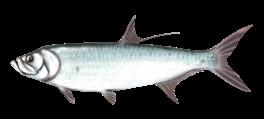
Captura
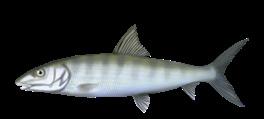
y Liberación/Catch and Release
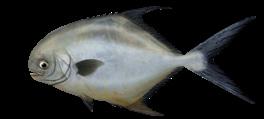







Exclusión de responsabilidad legal/ Legal liability disclaimer
• Las regulaciones, vedas y restricciones que aparecen en este calendario son las existentes al momento de la impresión. Estas pueden cambiar en cualquier momento; para leyes y reglamentos oficiales consulte al Federal Register como recurso oficial federal y a las oficinas pertinentes de los Gobiernos Estatales. Federal Register http://www.gpo.gov/, DRNA http://www.drna.pr.gov/, DPNR http://www.dpnr.vi.gov/
• The rules, fishing bans and restrictions that appear in this calendar are those existing at the time of printing. These may change at any moment: for the official laws and regulations, please consult the Federal Register as an official federal resource, as well as the pertinent offices associated to State Governments. Federal Register http://www.gpo.gov/, DRNA http://www.drna.gobierno.pr/, DPNR http:www.dnpr.vi.gov/
Los nombres utilizados en esta lista se obtuvieron del libro Nombres Vulgares de Peces en Puerto Rico (1983) por Donald Erdman.
The names used in this list were taken from the book Common Names of Fishes in Puerto Rico (1983) by Donald Erdman.
Ilustraciones/Artwork: Daniel Irizarri, Alexis Rivera & Deifchiramary Tirado Sea Grant UPR Mayagüez
ESPECIES species ENERO January FEBRERO February MARZO March ABRIL April MAYO May JUNIO June JULIO July AGOSTO August SEPTIEMBRE September OCTUBRE October NOVIEMBRE November DICIEMBRE December
Sábalo Tarpon Macaco Bonefish Pámpano Permit Palometa Pompano Aguja Picuda Longbill spearfish
VEDAS SEASONAL CLOSURES

Guajil
Yellowfin grouper
Mero negro Black grouper
Diente de sable Tiger grouper
Mero rojo Red grouper
Guajil amarillo
Yellowedge grouper
Sama Mutton snapper
Arrayao Lane snapper
Carrucho * Queen conch
Chillo ** Silk snapper
Alinegra ** Blackfin snapper
Besugo ** Vermilion snapper
Chopa negra ** Black snapper
Mero batata
Aguas Estatales de las Islas Vírgenes de EEUU U.S. Virgin Islands’ State Waters
Todas las vedas aplican a pescadores comerciales y recreacionales. / All seasonal closures apply to commercial and recreational fishers.






































Leyenda: / Legend:
No capturar
No capture
Goliath grouper
Mero cherna
Nassau grouper
























* La temporada de pesca termina cuando se alcanza el límite de 50,000 libras/ Fishing season ends once 50,000 pounds quota is reached. ** Vedas no aplican en St. Croix / Seasonal closures do not apply in St. Croix
Exclusión de responsabilidad legal/ Legal liability disclaimer
• Las regulaciones, vedas y restricciones que aparecen en este calendario son las existentes al momento de la impresión. Estas pueden cambiar en cualquier momento; para leyes y reglamentos oficiales consulte al Federal Register como recurso oficial federal y a las oficinas pertinentes de los Gobiernos Estatales. Federal Register http://www.gpo.gov/, DRNA http://www.drna.pr.gov/, DPNR http://www.dpnr.vi.gov/
• The rules, fishing bans and restrictions that appear in this calendar are those existing at the time of printing. These may change at any moment: for the official laws and regulations, please consult the Federal Register as an official federal resource, as well as the pertinent offices associated to State Governments. Federal Register http://www.gpo.gov/, DRNA http://www.drna.gobierno.pr/, DPNR http:www.dnpr.vi.gov/
Los nombres utilizados en esta lista se obtuvieron del libro Nombres Vulgares de Peces en Puerto Rico (1983) por Donald Erdman. The names used in this list were taken from the book Common Names of Fishes in Puerto Rico (1983) by Donald Erdman.
Ilustraciones/Artwork:
Daniel Irizarri, Alexis Rivera & Deifchiramary Tirado Sea Grant UPR Mayagüez
ESPECIES species ENERO January FEBRERO February MARZO March ABRIL April MAYO May JUNIO June JULIO July AGOSTO August SEPTIEMBRE September OCTUBRE October NOVIEMBRE November DICIEMBRE December
IBFMP de Puerto Rico
Puerto Rico IBFMP
¿Qué incorpora el IBFMP de Puerto Rico?
El IBFMP de Puerto Rico incorpora aquellos componentes de los Planes de Manejo Pesquero (FMPs, por sus siglas en inglés) de peces de arrecife, la langosta espinosa, el carrucho y los corales de todo el Caribe Estadounidense que pertenecen a la Zona Económica Exclusiva (ZEE) que rodea a Puerto Rico.
What does the Puerto Rico IBFMP incorporate?
The Puerto Rico IBFMP incorporates those components of the U.S. Caribbeanwide Reef Fish, Spiny Lobster, Queen Conch, and Corals FMPs that pertain to the Economic Exclusive Zone (EEZ) surrounding the island of Puerto Rico.
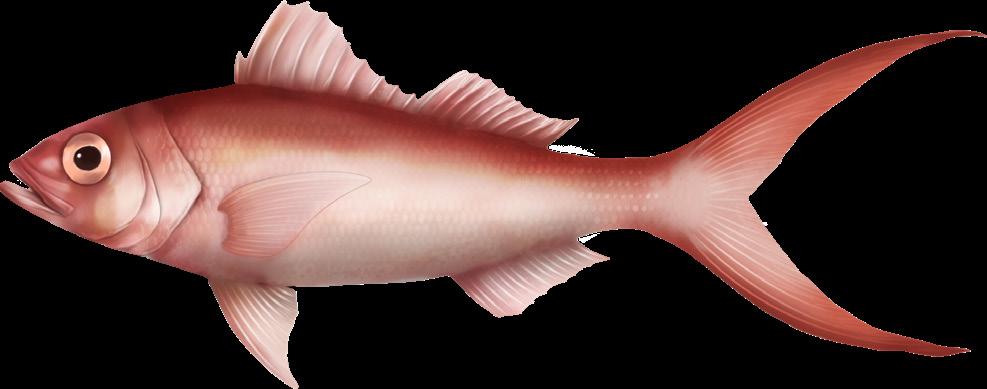
Cartucho
Queen snapper
Etelis oculatus
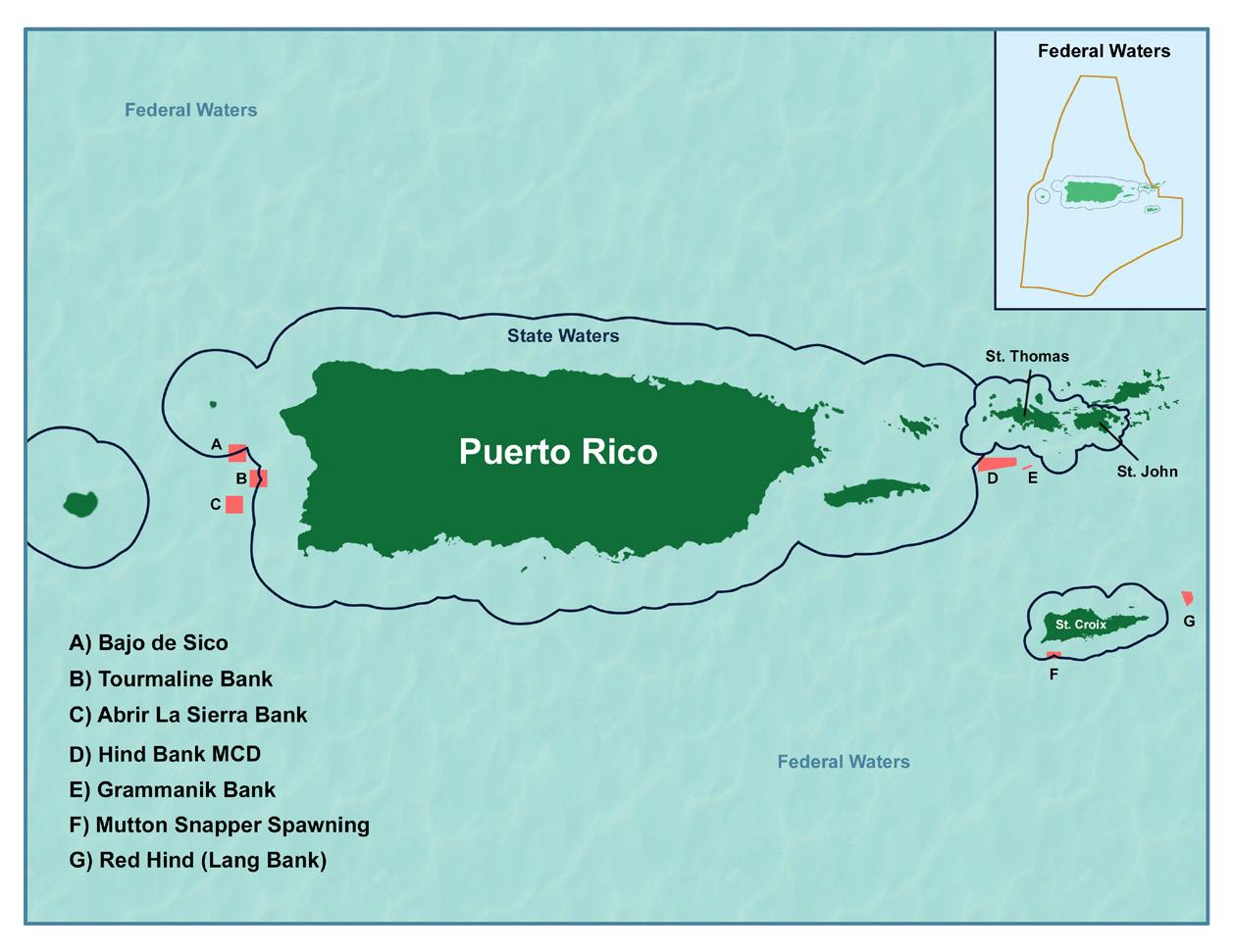
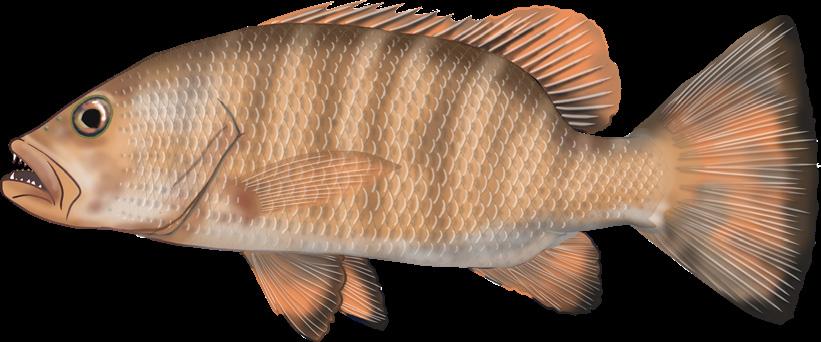
Cartucho
Queen snapper
Etelis oculatus

Sama
Mutton snapper
Lutjanus analis
Pargo cubera
Cubera snapper
Lutjanus cyanopterus
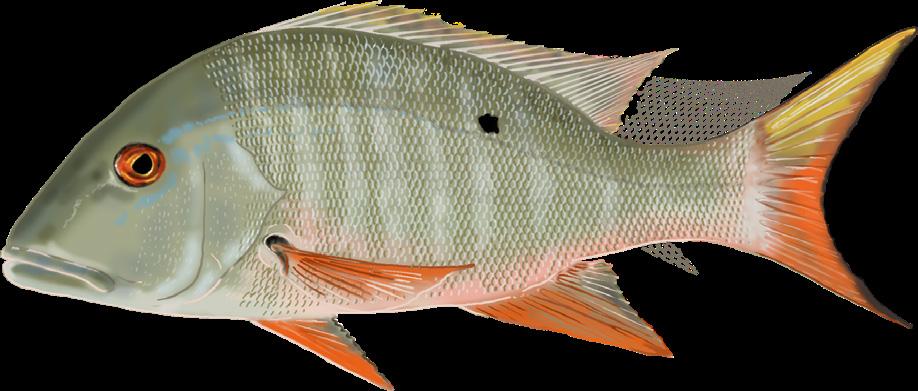 Los pargos aquí mostrados forman parte de las 13 especies de pargos incluidas en el IBFMP de Puerto Rico. / Snappers shown in this page are part of 13 species of snappers included in the Puerto Rico IBFMP.
Los pargos aquí mostrados forman parte de las 13 especies de pargos incluidas en el IBFMP de Puerto Rico. / Snappers shown in this page are part of 13 species of snappers included in the Puerto Rico IBFMP.
Día de Año NuevoNew Year’s Day Día de Martin Luther King, Jr.Martin Luther King, Jr. Day
enero January

LEYENDA/LEGEND
Luna
Cuarto creciente/First quarter
Luna llena/Full moon
Cuarto menguante/Last quarter
Enlace para las condiciones marítimas / Link to maritime conditions: www.caricoos.org
domingo lunes martes miércoles jueves viernes sábado Sunday Monday Tuesday Wednesday Thursday Friday Saturday 1 2 3 4 5 6 7 8 9 10 11 12 13 14 15 16 17 18 19 20 21 22 23 24 25 26 27 28 29 30 31
nueva/New moon
IBFMP de Puerto Rico
Puerto Rico IBFMP
¿Dónde están ubicadas las pesquerías regidas por el IBFMP de Puerto Rico?
Las pesquerías regidas por el IBFMP de Puerto Rico están ubicadas en la ZEE de los Estados Unidos que rodea a Puerto Rico (es decir, la ZEE de Puerto Rico), definida como las aguas federales que van de 9 a 200 millas náuticas (nm) (17 a 370 kilómetros [km]) desde el punto costero más cercano del Estado Libre Asociado de Puerto Rico. Los recursos pesqueros dentro de las 9 millas náuticas (17 km) de la costa de Puerto Rico son administrados por el Estado Libre Asociado de Puerto Rico. Los recursos pesqueros dentro de la ZEE de Puerto Rico incluidos en este IBFMP son administrados por el CFMC.
Where are the fisheries governed by the Puerto Rico IBFMP located?
Fisheries governed by the Puerto Rico IBFMP are located primarily in the U.S. EEZ surrounding Puerto Rico (i.e., the Puerto Rico EEZ), defined as the federal waters ranging from 9 to 200 nautical miles (nm) (17 – 370 kilometers [km]) from the nearest coastline point of the Commonwealth of Puerto Rico. Fishery resources within 9 nm (17 km) of the Puerto Rico coast are managed by the Commonwealth of Puerto Rico. Fishery resources within the Puerto Rico EEZ included in this FMP are managed by the CFMC.
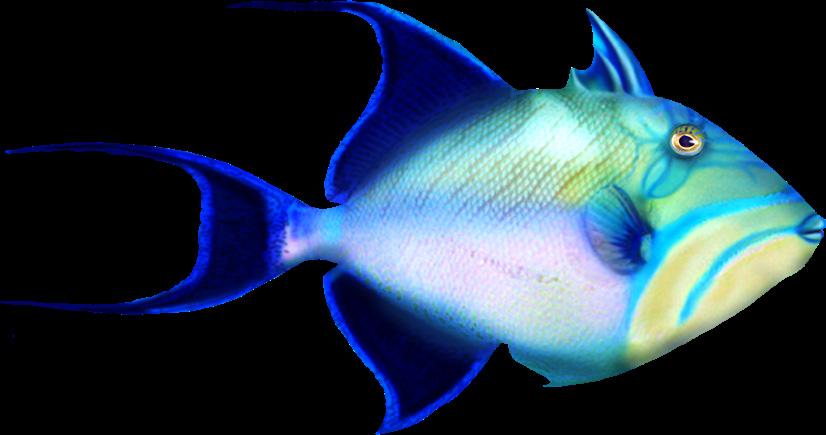
Pejepuerco
Queen triggerfish
Balistes vetula

Guajil boquiamarillo
Yellowmouth grouper
Mycteroperca interstitialis

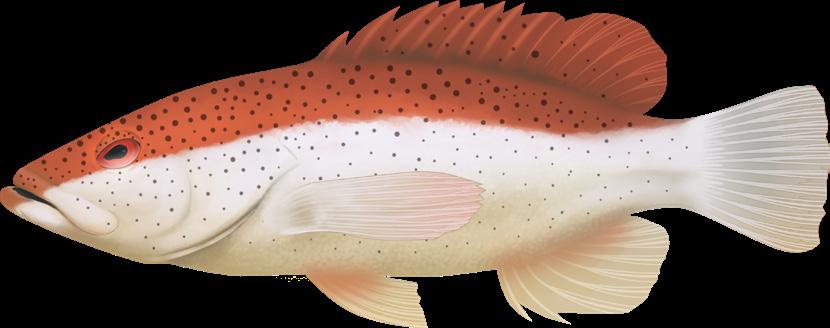
Mero mantequilla
Coney
Cephalopholis fulva
Mero cabrilla
Red hind
Epinephelus guttatus
Los meros aquí mostrados (M. interstitialis, C. fulva y E. guttatus) son parte de las 13 especies de meros incluidas en el IBFMP de Puerto Rico. El pejepuerco es una de tres especies de pejepuercos incluidas en el IBFMP de Puerto Rico. / Groupers shown in this page (M. interstitialis, C. fulva y E. guttatus) are part of the 13 species of groupers included in the Puerto Rico IBFMP. The queen triggerfish is one of the three species of triggerfish included in the Puerto Rico IBFMP.
febrero February

Luna
Cuarto
Luna
Cuarto
Enlace para las condiciones marítimas / Link to maritime conditions: www.caricoos.org
domingo lunes martes miércoles jueves viernes sábado Sunday Monday Tuesday Wednesday Thursday Friday Saturday 1 2 3 4 5 6 7 8 9 10 11 12 13 14 15 16 17 18 19 20 21 22 23 24 25 26 27 28 29
LEYENDA/LEGEND
nueva/New moon
creciente/First quarter
llena/Full moon
menguante/Last quarter Día de los PresidentesPresidents’ Day
IBFMP de Puerto Rico
Puerto Rico IBFMP
¿Cómo se dividen las poblaciones de peces en el IBFMP de Puerto Rico?
En el IBFMP de Puerto Rico, las poblaciones de peces se dividen en tres categorías basadas en grupos funcionales: peces de arrecife (51 especies), peces pelágicos (9 especies) y rayas (3 especies). También está la langosta espinosa del Caribe, el carrucho y los recursos de los arrecifes de coral: pepinos de mar, erizos de mar y corales.
How are the fish stocks divided in the Puerto Rico IBFMP?
In the Puerto Rico IBFMP, fish stocks are divided in three categories based on functional groups: Reef Fish (51 species), Pelagics (9 species), and Rays(3 species). There is also the Caribbean spiny lobster, the Queen conch and the Coral Reef Resources: sea cucumbers, sea urchins, and corals.

Pejepuerco gris
Gray triggerfish
Balistes capriscus

Rainbow runner
Elagatis bipinnulata
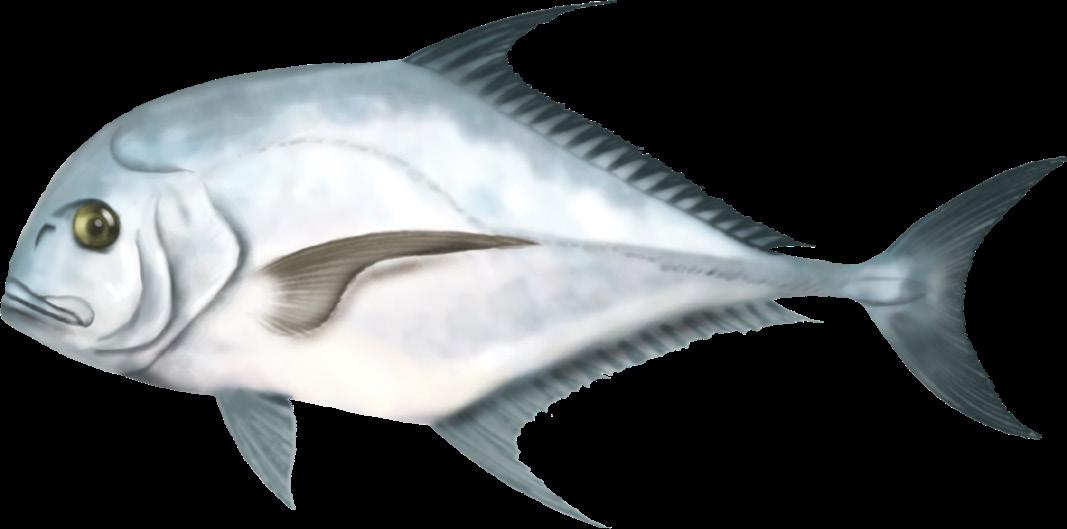

Jurel
Crevalle jack
Caranx hippos
el IBFMP
Pompano
African Pompano
Alectis ciliaris
Puerto
El pejepuerco
Rico
El jurel, el salmón y el pompano son las 3 especies de jureles incluidas en
de
Rico.
gris es una de las 3 especies de pejepuerco incluidas en el IBFMP de Puerto Rico (turco, pejepuerco y pejepuerco gris). / Crevalle jack, Rainbow runner and African pompano are the 3 species of jacks included in the Puerto
IBFMP. The Gray triggerfish is one of the 3 species of Queen triggerfish included in the Puerto Rico IBFMP (Ocean triggerfish, Queen triggerfish and Gray triggerfish).
Luna
Cuarto
Luna
Cuarto menguante/Last quarter

marzo March
Enlace para las condiciones marítimas / Link to maritime conditions: www.caricoos.org
domingo lunes martes miércoles jueves viernes sábado Sunday Monday Tuesday Wednesday Thursday Friday Saturday 1 2 3 4 5 6 7 8 9 10 11 12 13 14 15 16 17 18 19 20 21 22 23 24 25 26 27 28 29 30 31 LEYENDA/LEGEND
nueva/New moon
creciente/First quarter
llena/Full moon
Sobre los IBFMPs
About the IBFMPs
Meta general de los IBFMPs
Cada uno de los IBFMPs busca garantizar la continua salud de los recursos pesqueros que se encuentran en la ZEE, dentro del contexto de características biológicas, ecológicas, económicas y culturales únicas de esos recursos y de las comunidades que dependen de ellos.

Overarching goal of the IBFMPs
The overarching goal of the IBFMPs is to ensure the continued health of fishery resources occurring in the EEZ, within the context of the unique biological, ecological, economic, and cultural characteristics of those resources and the communities dependent upon them.

Dolphinfish; Mahi-Mahi
Coryphaena hippurus
Mantarraya
Giant manta ray
Manta birostris
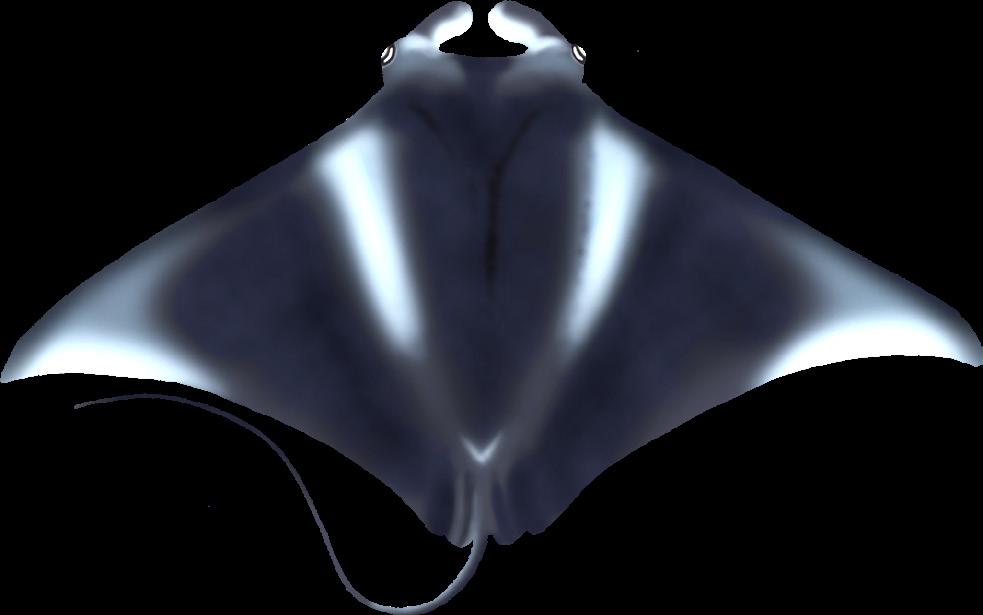

Chucho
Spotted eagle ray
Aetobatus narinari
Estas tres especies de rayas están incluidas en el IBFMP de Puerto Rico. El dorado es una de nueve especies pelágicas incluidas en este IBFMP. Todas las especies de rayas y los abastos pelágicos son nuevos para el manejo bajo el IBFMP de Puerto Rico. / These three species of rays are included in the Puerto Rico IBFMP. The dolphinfish is one of the nine pelagic species included in this IBFMP. All the ray species and the pelagic stocks are new to management under the Puerto Rico IBFMP.
abril April

LEYENDA/LEGEND
Cuarto
Luna
Cuarto
Enlace para las condiciones marítimas / Link to maritime conditions: www.caricoos.org
domingo lunes martes miércoles jueves viernes sábado Sunday Monday Tuesday Wednesday Thursday Friday Saturday 1 2 3 4 5 6 7 8 9 10 11 12 13 14 15 16 17 18 19 20 21 22 23 24 25 26 27 28 29 30
moon
Luna nueva/New
quarter
creciente/First
moon
llena/Full
menguante/Last quarter
IBFMP de St. Thomas/St. John
St. Thomas/St.John
IBFMP
¿Qué incorpora el IBFMP de St. Thomas/St. John?
El IBFMP de St. Thomas/St. John incorpora aquellos componentes de los FMPs de peces de arrecife, la langosta espinosa, el carrucho y los corales de todo el Caribe Estadounidense que pertenecen a la Zona Económica Exclusiva (ZEE) que rodea a St. Thomas/St. John.
What does the St. Thomas/St. John IBFMP incorporate?
The St. Thomas/St. John IBFMP incorporates those components of the U.S. Caribbean-wide Reef Fish, Spiny Lobster, Queen Conch, and Coral FMPs that pertain to the EEZ surrounding the islands of St. Thomas/St. John.
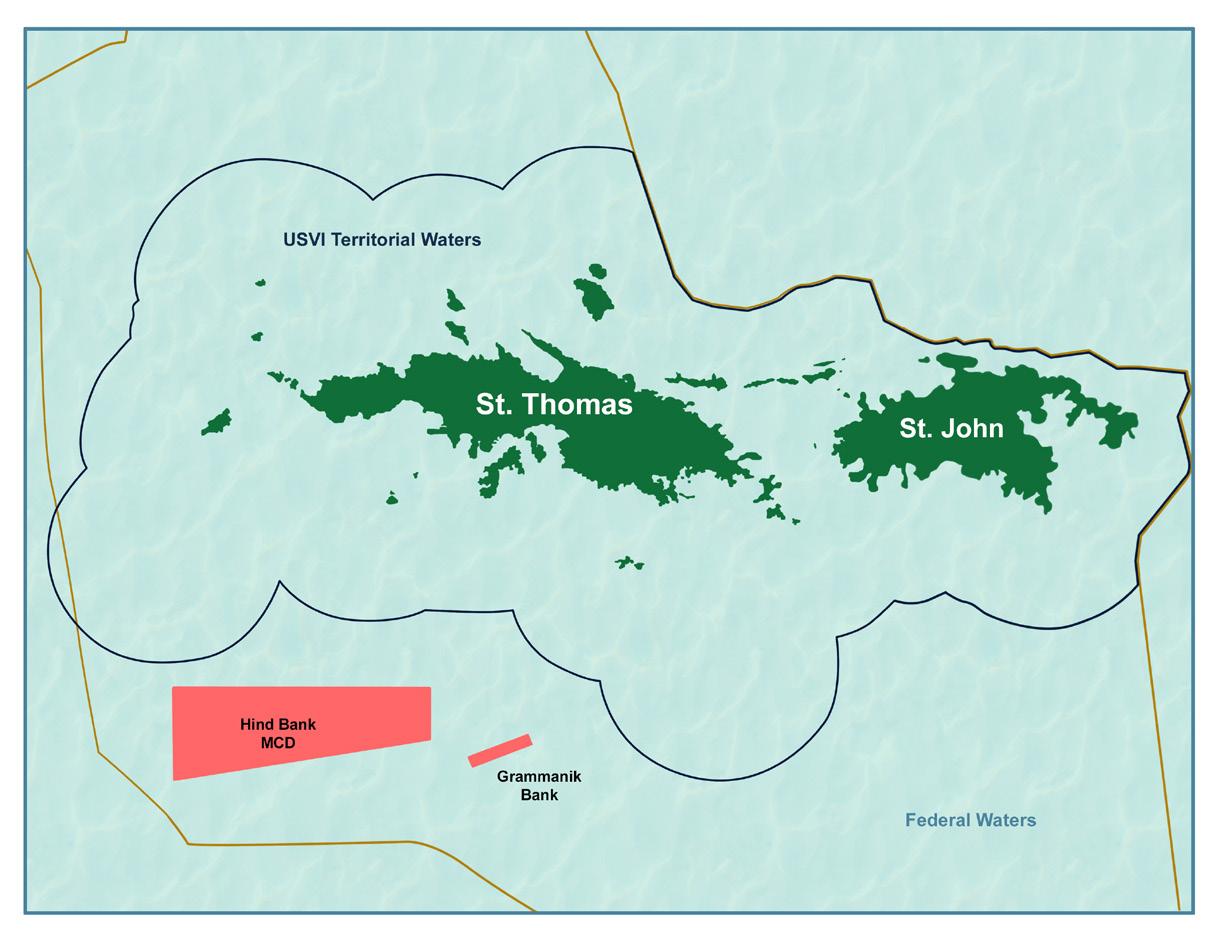
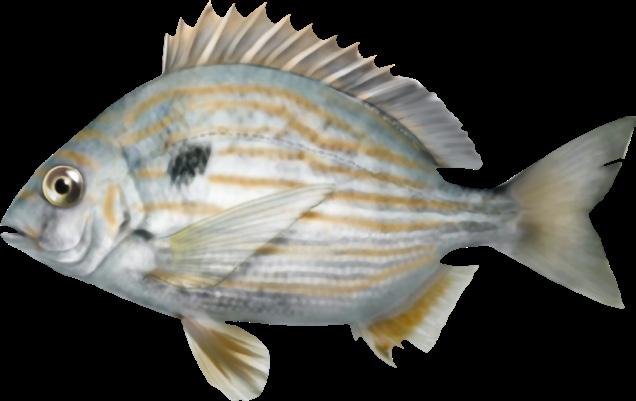
Cagona
Sea Bream
Archosargus rhomboidales
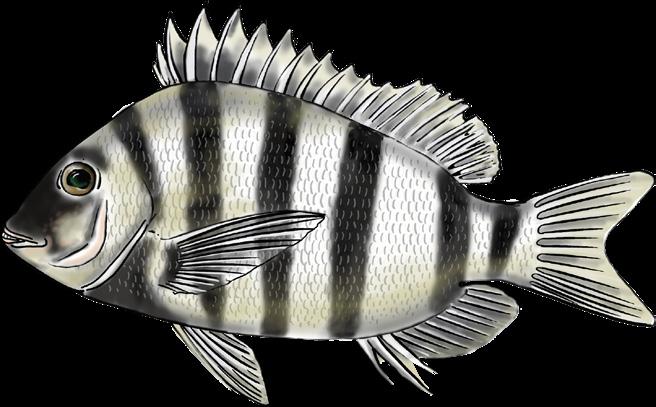
Sargo chopa
Sheephead porgy
Calamus penna

Bajonado
Jolthead porgy
Calamus bajonado
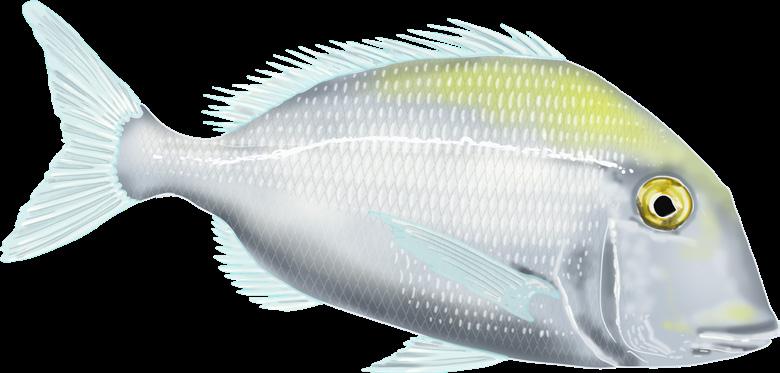
Saucereye porgy
Calamus calamus
Las cuatro especies de porgies aquí ilustradas componen el complejo del abasto de porgies incluido en el IBFMP de St. Thomas/St. John. / The four species of porgies illustrated here comprise the stock complex of porgies included in the IBFMP de St. Thomas/St. John.
Luna
Cuarto
Luna
Cuarto

mayo May
Enlace para las condiciones marítimas / Link to maritime conditions: www.caricoos.org
domingo lunes martes miércoles jueves viernes sábado Sunday Monday Tuesday Wednesday Thursday Friday Saturday 1 2 3 4 5 6 7 8 9 10 11 12 13 14 15 16 17 18 19 20 21 22 23 24 25 26 27 28 29 30 31 LEYENDA/LEGEND
nueva/New moon
creciente/First quarter
llena/Full moon
menguante/Last quarter Día de los CaídosMemorial Day
IBFMP de St. Thomas/St. John
St. Thomas/St. John FMP
¿Dónde están ubicadas las pesquerías regidas por el IBFMP de St. Thomas/St. John?
Las pesquerías regidas por el IBFMP de St. Thomas/ St. John están ubicadas en la ZEE de los Estados Unidos que rodea a St. Thomas/St. John (es decir, la ZEE de St. Thomas/St. John), definida como aguas federales que van desde 3 a 200 millas náuticas (nm) (6 a 370 kilómetros [km]) desde el punto costero más cercano de las islas de St. Thomas y St. John). Los recursos pesqueros dentro de las tres millas náuticas de la costa de las Islas Vírgenes Estadounidenses son administrados por el gobierno territorial de las Islas Vírgenes Estadounidenses.
Where are the fisheries governed by the St. Thomas/St. John IBFMP located?
Fisheries governed by the St. Thomas/ St. John FMP are located primarily in the U.S. EEZ surrounding St. Thomas/St. John (i.e., the St. Thomas/St. John EEZ), defined as federal waters ranging from 3 to 200 nautical miles (nm) (6 – 370 kilometers [km]) from the nearest coastline point of the islands of St. Thomas and St. John). Fishery resources within three nautical miles of the USVI coast are managed by the territorial government of the USVI.
Loro colirrojo
Redtail parrotfish
Sparisoma chrysopterum

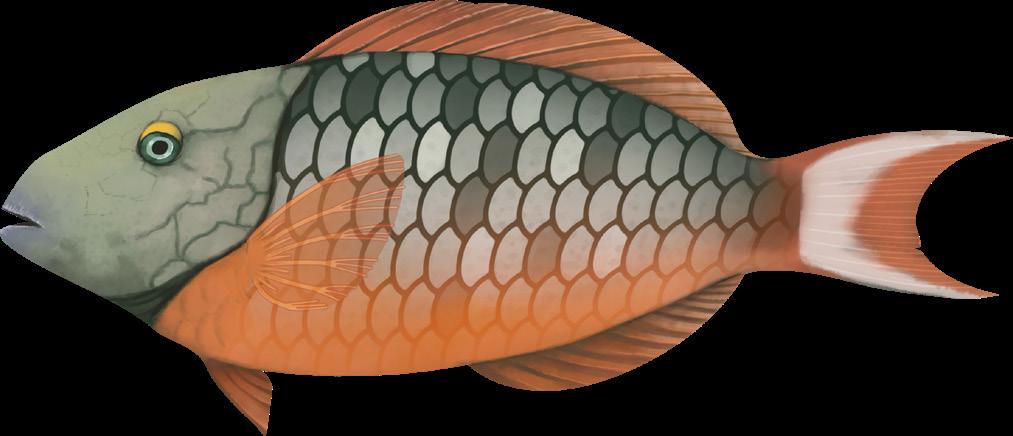

Loro verde
Stoplight parrotfish
Sparisoma viride
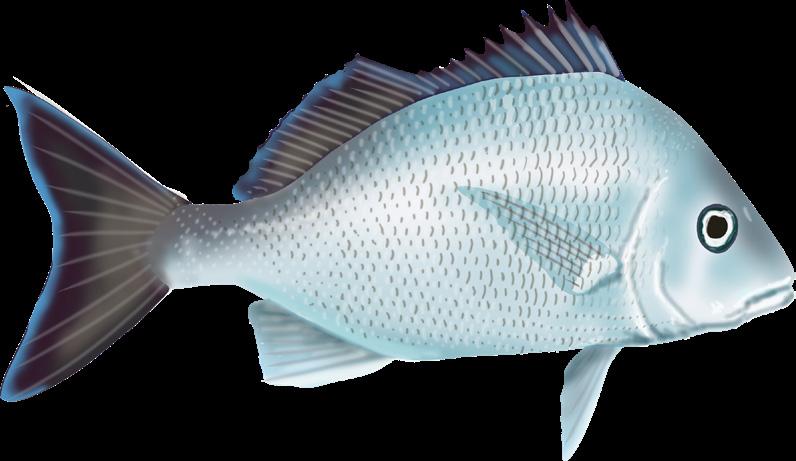
Ronco amarillo; boquicolorao
Bluestriped grunt
Haemulon sciurus
Viuda
White Margate
Haemulon album
El IBFMP de St. Thomas/St. John incluye 10 especies de loros y 3 especies de roncos. Los loros colirrojos y verde, la viuda y el ronco amarillo son parte de estas especies incluidas en dicho plan. / The St. Thomas/St. John IBFMP includes 10 species of parrotfish and 3 species of grunts. Redtail and Stoplight parrotfish, the White Margate, and the Bluestriped grunt are included in this plan.
Luna
Cuarto
Luna
Cuarto

junio June
Enlace para las condiciones marítimas / Link to maritime conditions: www.caricoos.org
domingo lunes martes miércoles jueves viernes sábado Sunday Monday Tuesday Wednesday Thursday Friday Saturday 1 2 3 4 5 6 7 8 9 10 11 12 13 14 15 16 17 18 19 20 21 22 23 24 25 26 27 28 29 30 LEYENDA/LEGEND
nueva/New moon
creciente/First quarter
llena/Full moon
menguante/Last quarter Juneteenth
IBFMP de St. Thomas/St. John St. Thomas/St.John IBFMP
¿Cómo se dividen las poblaciones de peces en el IBFMP de St. Thomas/St. John?
En el IBFMP de St. Thomas/St. John, las poblaciones de peces se dividen en dos categorías basadas en grupos funcionales: peces de arrecife (45 especies) y peces pelágicos (2 especies). También está la langosta espinosa del Caribe, el carrucho y los recursos de los arrecifes de coral: pepinos de mar, erizos de mar y corales.
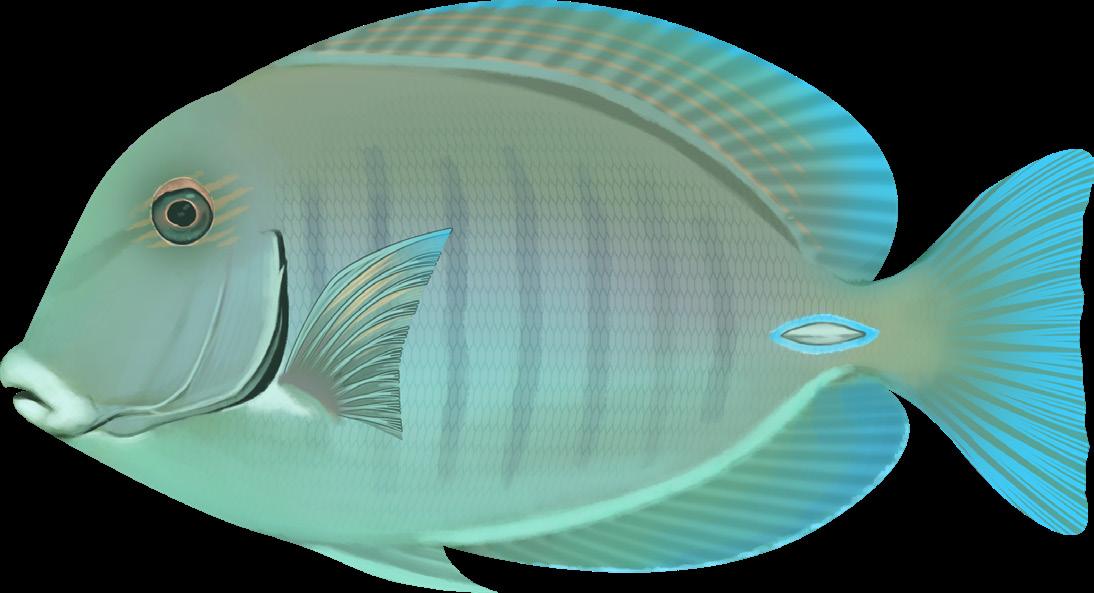
Cirujano; Médico Doctorfish; Surgeonfish
Acanthurus chirurgus
How are the fish stocks divided in the St. Thomas/St. John IBFMP?
In the St. Thomas/St. John IBFMP, fish stocks are divided in two categories based on functional groups: Reef Fish (45 species) and Pelagics (2 species). There is also the Caribbean spiny lobster, the Queen conch and the Coral Reef Resources: sea cucumbers, sea urchins, and corals.
Pez ángel gris
Gray angelfish
Pomacanthus arcuatus
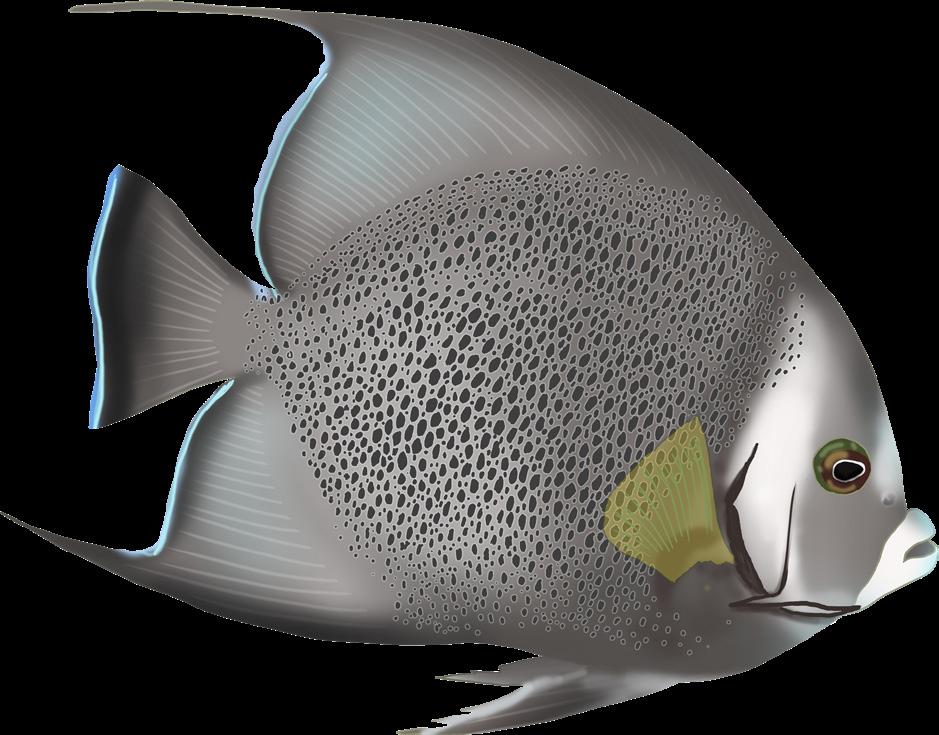 El IBFMP de St. Thomas/St. John incluye 3 especies de peces cirujano y 3 especies de peces ángel. El pez cirujano o médico y el pez ángel gris forman parte de estos abastos incluidos en el plan. / St. Thomas/St. John IBFMP includes 3 species of surgeonfish and 3 species of angelfish. The Doctorfish or Surgeonfish and the Gray angelfish are part of these stocks included in the plan.
El IBFMP de St. Thomas/St. John incluye 3 especies de peces cirujano y 3 especies de peces ángel. El pez cirujano o médico y el pez ángel gris forman parte de estos abastos incluidos en el plan. / St. Thomas/St. John IBFMP includes 3 species of surgeonfish and 3 species of angelfish. The Doctorfish or Surgeonfish and the Gray angelfish are part of these stocks included in the plan.
julio July

LEYENDA/LEGEND
Luna
Cuarto
Luna llena/Full
Cuarto
Enlace para las condiciones marítimas / Link to maritime conditions: www.caricoos.org
domingo lunes martes miércoles jueves viernes sábado Sunday Monday Tuesday Wednesday Thursday Friday Saturday 1 2 3 4 5 6 7 8 9 10 11 12 13 14 15 16 17 18 19 20 21 22 23 24 25 26 27 28 29 30 31
moon
nueva/New
quarter
creciente/First
moon
quarter
menguante/Last
Día de la IndependenciaIndependence Day
Sobre los IBFMPs
About the IBFMPs
Metas de manejo pesquero compartidas por los tres IBFMPs
Cada IBFMP cuenta con metas específicas para cada isla. No obstante, hay metas que se comparten a través de todo el Caribe Estadounidense. A continuación, presentamos una lista resumida de estas metas compartidas:
1. Manejar las pesquerías de manera tal que se protejan los bienes y servicios provistos por el ecosistema, tales como: alimentos, ingresos y recreación para los seres humanos.
2. Prevenir la sobrepesca y lograr el rendimiento óptimo de las pesquerías.
3. Asegurar la salud continua de los recursos pesqueros.
4. Fomentar la colaboración entre las autoridades territoriales y federales.
Sama
Mutton snapper
Lutjanus analis
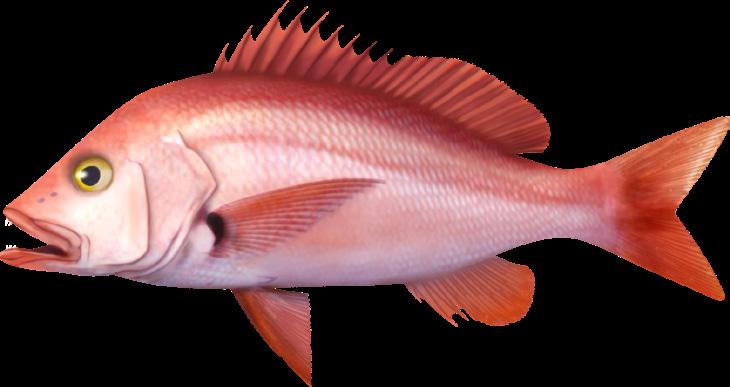
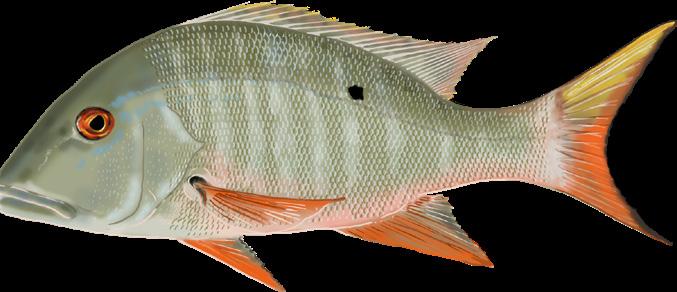
Fishery management goals shared by the three IBFMPs
Each IBFMP has specific goals for each island. However, there are goals that are shared among all the U.S. Caribbean. Below, we present a summary of these shared goals:
1. Manage fisheries so that goods and services (f.ex. food, revenues and recreation for humans) provided by the ecosystem can be protected.
2. Prevent overfishing and achieve the fisheries’ optimum yield.
3. Ensure the continued health of fishery resources.
4. Foster collaboration among territorial and federal authorities.


Chillo alinegra
Blackfin snapper
Lutjanus buccanella
Wahoo
Acanthocybium solandri
Dorado
Dolphinfish; Mahi-Mahi
Coryphaena hippurus
El chillo alinegra y la sama forman parte de las 8 especies de pargos que fueron incluidas en el IBFMP de St.Thomas/St.John. El dorado y el peto son las 2 especies pelágicas incluidas en dicho plan; estas son nuevas para el manejo bajo el IBFMP de St. Thomas/St. John. La langosta espinosa y el carrucho también fueron incluidos en este IBFMP. El carrucho tiene veda permanente en aguas federales; no se puede pescar en ningún momento del año. / The blackfin snapper and the mutton snapper are part of the 8 species of snappers that were included in the St.Thomas/St.John IBFMP. Dolphinfish and wahoo are the 2 pelagic species included in this plan; these species are new to management under the St. Thomas/St. John IBFMP. The spiny lobster and the queen conch were also included in this IBFMP. Fishing for queen conch in federal waters is prohibited all year-round.
Luna
Cuarto
Luna
Cuarto menguante/Last quarter

Enlace para las condiciones marítimas / Link to maritime conditions: www.caricoos.org
domingo lunes martes miércoles jueves viernes sábado Sunday Monday Tuesday Wednesday Thursday Friday Saturday 1 2 3 4 5 6 7 8 9 10 11 12 13 14 15 16 17 18 19 20 21 22 23 24 25 26 27 28 29 30 31 LEYENDA/LEGEND
agosto August
nueva/New moon
creciente/First quarter
llena/Full moon
IBFMP de St. Croix
St. Croix IBFMP
¿Qué incorpora el IBFMP de St. Croix?
El IBFMP de St. Croix incorpora aquellos componentes de los Planes de Manejo Pesquero (FMPs, por sus siglas en inglés) de peces de arrecife, la langosta espinosa, el carrucho y los corales de todo el Caribe Estadounidense que pertenecen a la Zona Económica Exclusiva (ZEE) que rodea a St. Croix.
What does the Puerto Rico IBFMP incorporate?
The St. Croix IBFMP incorporates those components of the U.S. Caribbeanwide Reef Fish, Spiny Lobster, Queen Conch, and Corals FMPs that pertain to the Economic Exclusive Zone (EEZ) surrounding the island of Puerto Rico.
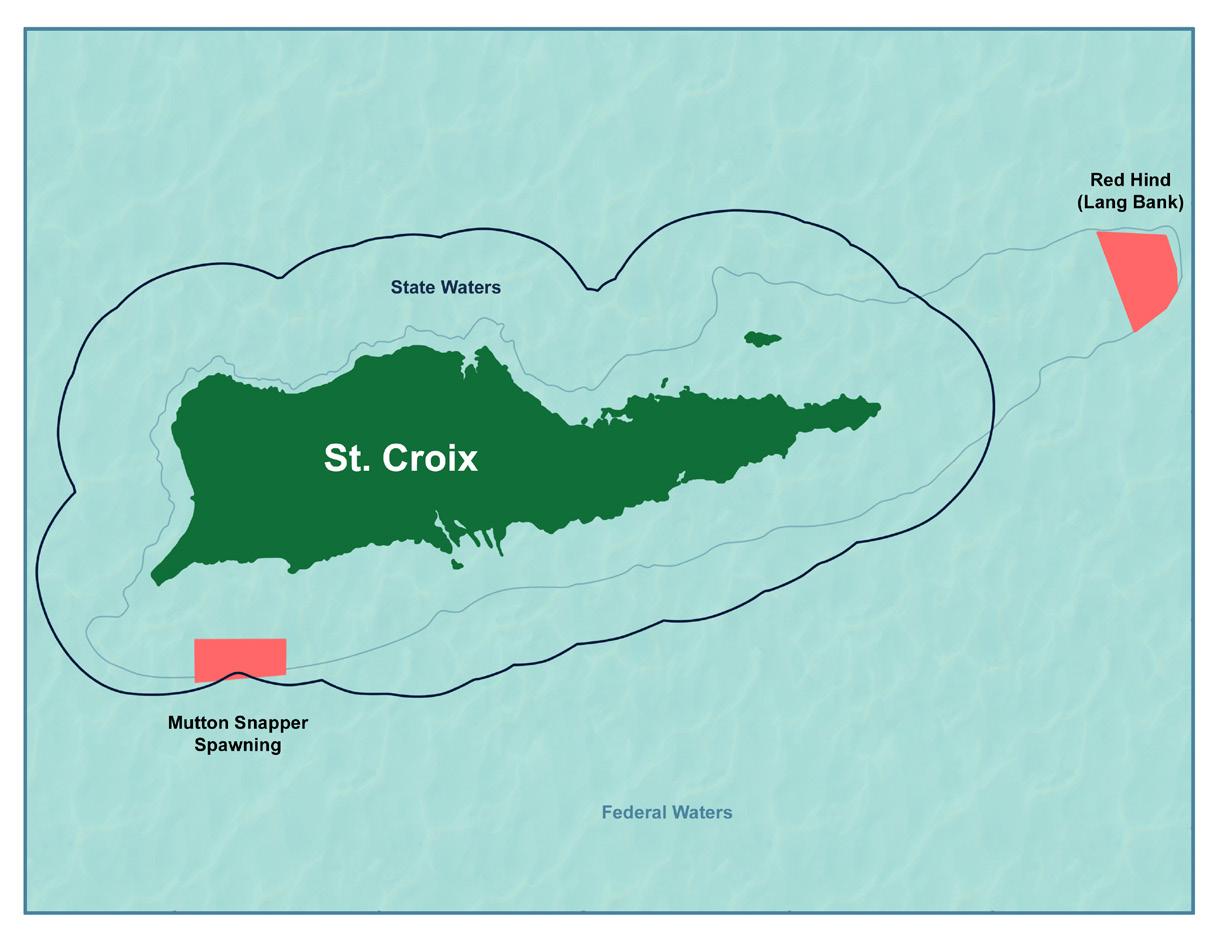
Yellowfin grouper
Mero aleta amarilla
Mycteroperca venenosa
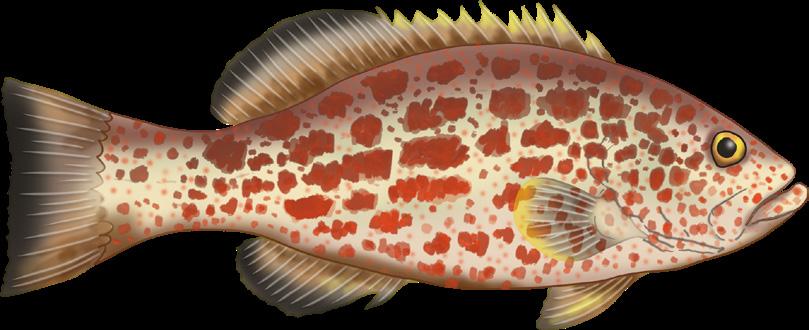

Mero cabra mora Rock hind
Epinephelus adscensionis
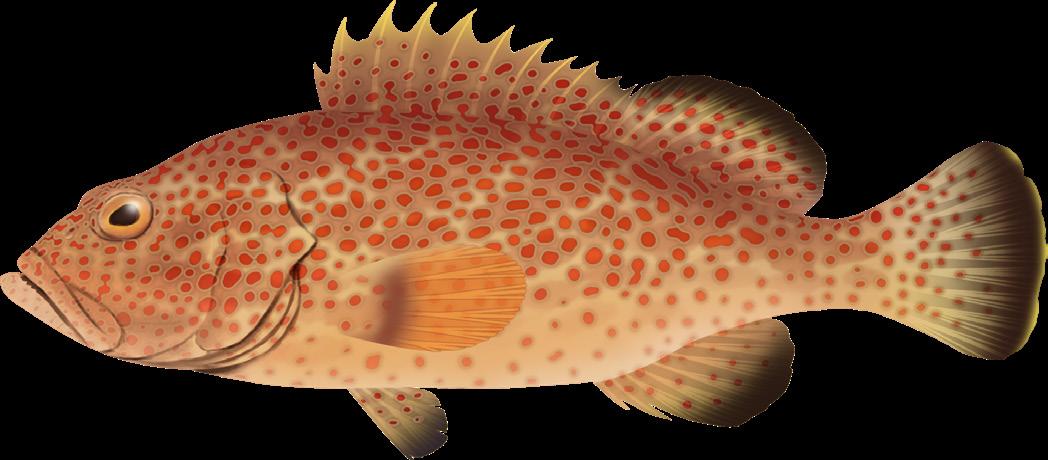
Mero cabrilla
Red hind
Mero tigre o diente de sable
Tiger grouper
Mycteroperca tigris
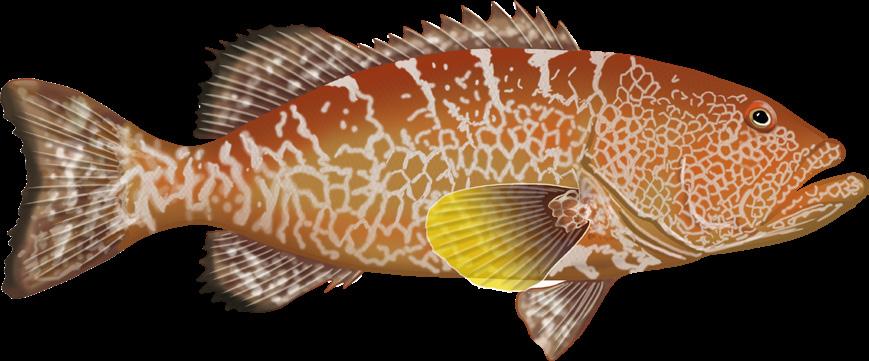
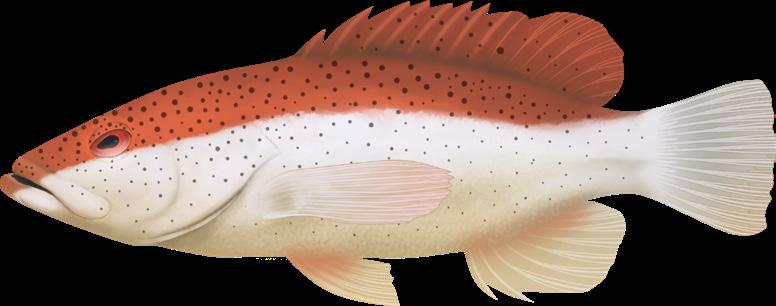
Epinephelus guttatus
Mero mantequilla
Coney
Cephalopholis fulva
Los meros aquí ilustrados forman parte de las 11 especies de meros incluidas en el IBFMP de St. Croix. / The groupers illustrated in this page are part of the 11 species of groupers included in the St. Croix IBFMP.
septiembre September

Luna
Cuarto
Luna
Cuarto
Enlace para las condiciones marítimas / Link to maritime conditions: www.caricoos.org
domingo lunes martes miércoles jueves viernes sábado Sunday Monday Tuesday Wednesday Thursday Friday Saturday 1 2 3 4 5 6 7 8 9 10 11 12 13 14 15 16 17 18 19 20 21 22 23 24 25 26 27 28 29 30
LEYENDA/LEGEND
nueva/New moon
quarter
creciente/First
moon
llena/Full
menguante/Last quarter Día del TrabajoLabor Day
IBFMP de St. Croix
St. Croix IBFMP
¿Dónde están ubicadas las pesquerías regidas por el IBFMP de St. Croix?
Las pesquerías manejadas por el IBFMP de St. Croix están ubicadas principalmente en la ZEE de los EE. UU. que rodea a St. Croix (es decir, la ZEE de St. Croix), definida como las aguas federales que van de 3 a 200 millas náuticas (nm) (6 – 370 kilómetros [ km]) desde el punto costero más cercano a la isla de St. Croix. Los recursos pesqueros dentro de un radio de 3 millas náuticas (6 km) de la costa de las Islas Vírgenes Estadounidenses son administrados por el gobierno territorial de las Islas Vírgenes Estadounidenses.
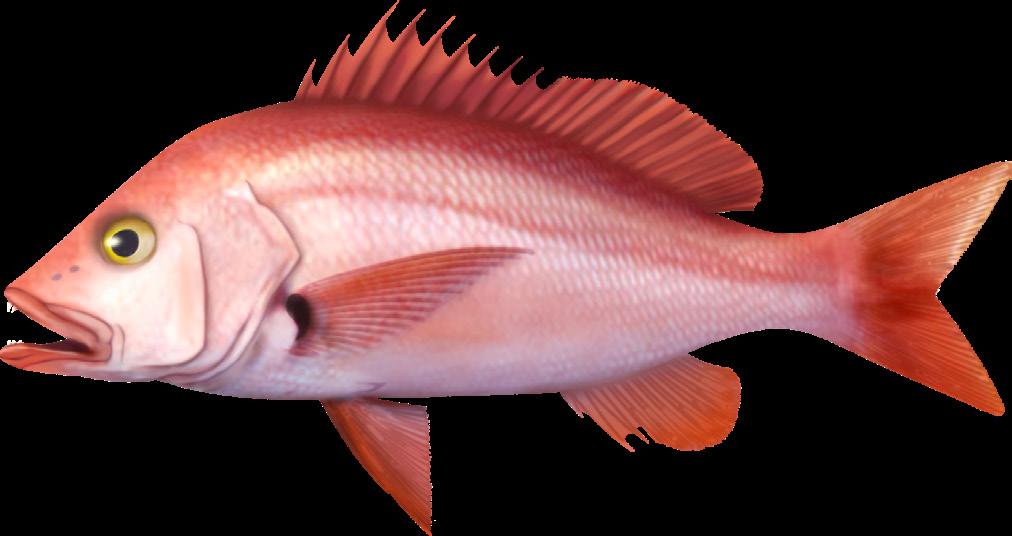
Cartucho
Queen snapper
Etelis oculatus
Chillo alinegra
Blackfin snapper
Lutjanus buccanella
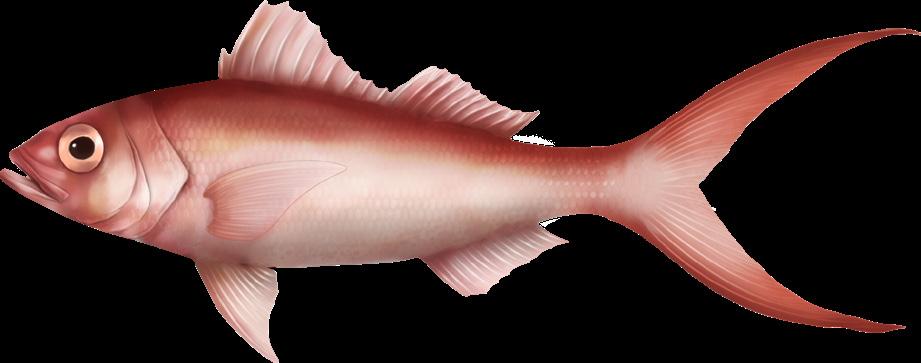
Where are the fisheries governed by the St. Croix IBFMP located?
Fisheries governed by the St. Croix FMP are located primarily in the U.S. EEZ surrounding St. Croix (i.e., the St. Croix EEZ), defined as the federal waters ranging from 3 to 200 nautical miles (nm) (6 –370 kilometers [km]) from the nearest coastline point of the island of St. Croix. Fishery resources within 3 nm (6 km) of the USVI coast are managed by the territorial government of the USVI.
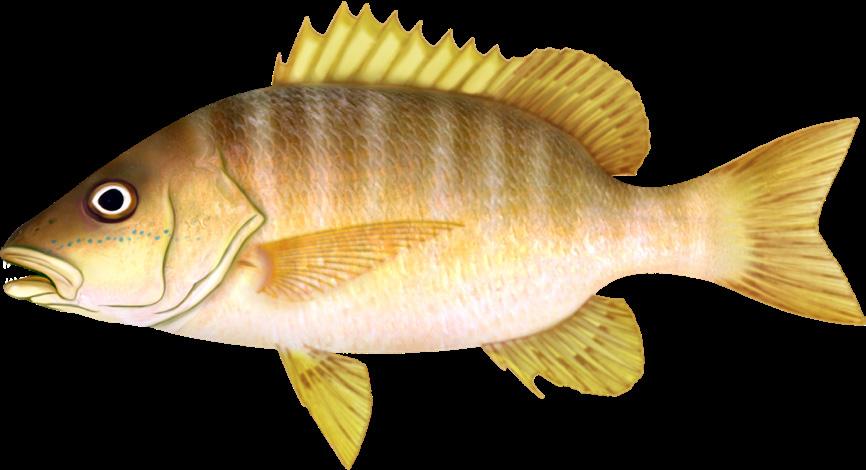
Pargo amarillo
Schoolmaster
Lutjanus apodus
Los tres pargos aquí ilustrados son parte de las 10 especies de pargos incluidas en el IBFMP de St. Croix. / The three snappers illustrated in this page are part of the 10 species of snappers included in the St. Croix IBFMP.
octubre October

Cuarto
Luna
Enlace para las condiciones marítimas / Link to maritime conditions: www.caricoos.org
domingo lunes martes miércoles jueves viernes sábado Sunday Monday Tuesday Wednesday Thursday Friday Saturday 1 2 3 4 5 6 7 8 9 10 11 12 13 14 15 16 17 18 19 20 21 22 23 24 25 26 27 28 29 30 31
nueva/New moon
LEYENDA/LEGEND Luna
creciente/First quarter
llena/Full moon
menguante/Last quarter Columbus Day
Cuarto
IBFMP de St. Croix
St. Croix IBFMP
¿Cómo se dividen las poblaciones de peces en el IBFMP de St. Croix?
En el IBFMP de St. Croix, las poblaciones de peces se dividen en dos categorías basadas en grupos funcionales: peces de arrecife (41 especies) y peces pelágicos (2 especies). También está la langosta espinosa del Caribe, el carrucho y los recursos de los arrecifes de coral: pepinos de mar, erizos de mar y corales.
How are the fish stocks divided in the St. Croix IBFMP?
In the St. Croix IBFMP, fish stocks are divided in two categories based on functional groups: Reef Fish (41 species) and Pelagics (2 species). There is also the Caribbean spiny lobster, the Queen conch and the Coral Reef Resources: sea cucumbers, sea urchins, and corals.
Pez ángel gris
Gray angelfish
Pomacanthus arcuatus

Pez ángel francés
French angelfish
Pomacanthus paru

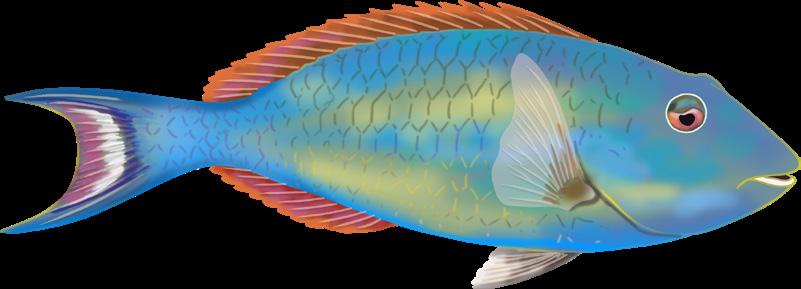
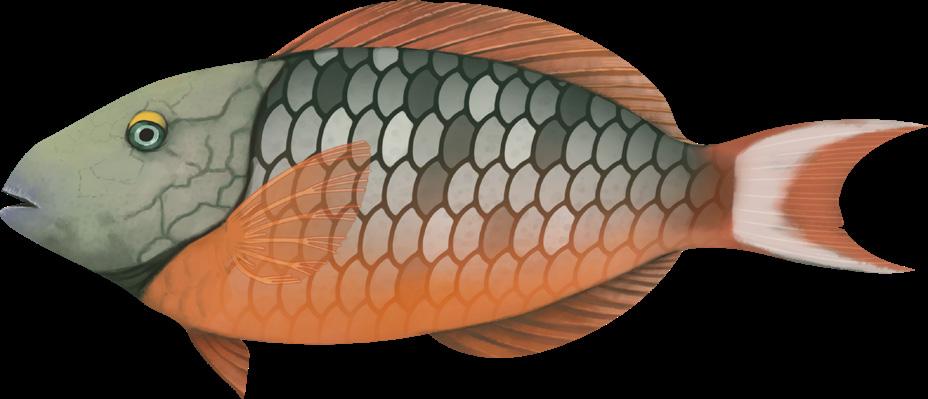
Loro verde
Loro colirrojo
Redtail parrotfish
Sparisoma chrysopterum
Stoplight parrotfish
Sparisoma viride
Las especies de peces ángel y de loros ilustradas en esta página forman parte de las 3 especies de peces ángel y de las 10 especies de loros incluidas en el IBFMP de St. Croix. / The angelfish and parrotfish species illustrated in this page are part of the 3 species of angelfish and 10 species of parrotfish included in the St. Croix IBFMP.
Luna
Cuarto
Luna
Cuarto

November
Enlace para las condiciones marítimas / Link to maritime conditions: www.caricoos.org
noviembre
domingo lunes martes miércoles jueves viernes sábado Sunday Monday Tuesday Wednesday Thursday Friday Saturday 1 2 3 4 5 6 7 8 9 10 11 12 13 14 15 16 17 18 19 20 21 22 23 24 25 26 27 28 29 30 LEYENDA/LEGEND
nueva/New moon
creciente/First quarter
llena/Full moon
menguante/Last quarter Día de los VeteranosVeterans Day Día de Acción de GraciasThanksgiving Day
Sobre los IBFMPs
About the IBFMPs
Objetivos de manejo pesquero compartidos por los tres IBFMPs
En todo plan, se establecen objetivos para alcanzar las metas trazadas. Cada IBFMP cuenta con objetivos específicos para cada isla. Sin embargo, hay objetivos que se comparten a través de todo el Caribe Estadounidense. A continuación, presentamos una lista resumida de estos objetivos compartidos:
1. Promover el uso justo y equitativo de los recursos pesqueros.
2. Asegurar la salud y la diversidad de la red trófica y los ecosistemas.
3. Reducir la pesca incidental y los desechos en las pesquerías.
4. Promover la concienciación sobre las leyes y reglamentos.
5. Colaborar con cuerpos de manejo pesquero domésticos e internacionales.
Pejepuerco
Queen triggerfish
Balistes vetula
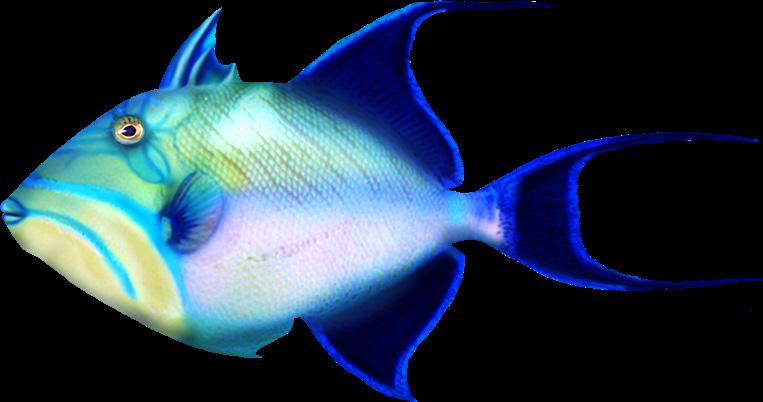

Dorado
Peto
Wahoo
Fishery management objectives shared by the three IBFMPs
In order to achieve the goals, every plan entails the establishment of objectives. Each IBFMP has specific objectives for each island. However, there are objectives that are shared among all the U.S. Caribbean. Below, we present a summary of these shared objectives:
1. Promote fair and equitable use of fishery resources.
2. Ensure a healthy and diverse trophic web and ecosystems.
3. Reduce bycatch and waste in the fishery.
4. Promote awareness of laws and regulations.
5. Collaborate with domestic and international fishery management bodies.

Acanthocybium solandri
Dolphinfish; Mahi-Mahi Coryphaena hippurus
Cachicata
White grunt
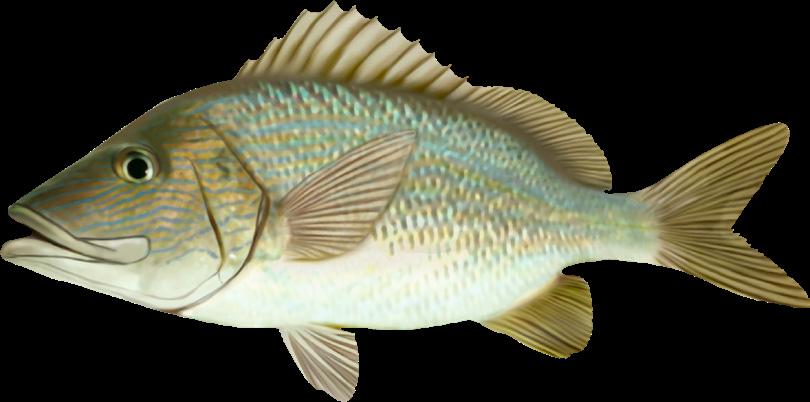
Haemulon plumierii
El IBFMP de St. Croix incluye 2 especies de peces pelágicos (dorado y peto), 1 especie de pejepuerco (pejepuerco) y 2 especies de ronco (cachicata y ronco amarillo). Aquí presentamos cuatro de esas 5 especies. Ambos abastos de peces pelágicos son nuevos para el manejo bajo el IBFMP de St. Croix. / The St. Croix IBFMP includes 2 species of pelagic fishes (Dolphinfish and Wahoo), 1 species of triggerfish (Queen triggerfish) and 2 species of grunts (Bluestriped and White grunt). Here we show four out of five of these species. Both pelagic stocks are new to management under the St. Croix IBFMP.
diciembre
December

LEYENDA/LEGEND
Luna
Cuarto
Luna
Enlace para las condiciones marítimas / Link to maritime conditions: www.caricoos.org domingo lunes martes miércoles jueves viernes sábado Sunday Monday Tuesday Wednesday Thursday Friday Saturday 1 2 3 4 5 6 7 8 9 10 11 12 13 14 15 16 17 18 19 20 21 22 23 24 25 26 27 28 29 30 31
nueva/New moon
creciente/First quarter
llena/Full moon
menguante/Last quarter Día de NavidadChristmas Day
Cuarto
Manejo Pesquero Basado en el Ecosistema
Ecosystem-Based Fishery Management
Un ecosistema se compone de todos los organismos de un área determinada que interactúan entre sí y con los componentes no vivos. A los componentes vivos se les conoce como componentes bióticos y a los no vivos se les llama abióticos. Los peces, las algas, las bacterias, los corales, los mangles y el ser humano son ejemplos de los componentes bióticos. El agua, la luz solar, el oxígeno, la salinidad, la acidez y la temperatura son ejemplos de los componentes abióticos.
El Manejo Pesquero Basado en el Ecosistema (EBFM, por sus siglas en inglés) toma en cuenta todos estos elementos y sus interacciones. NOAA fisheries define el EBFM como una forma holística de manejar las pesquerías y los recursos marinos tomando en cuenta todo el ecosistema y las especies que están siendo manejadas. La meta del EBFM es mantener los ecosistemas en una condición saludable productiva y resiliente de forma tal que estos provean los servicios que los seres humanos quieren y necesitan.
An ecosystem is made up of all the organisms in a given area that interact with each other and with non-living components. Living components are known as biotic components and nonliving components are called abiotic. Fish, algae, bacteria, corals, mangroves, and humans are examples of biotic components. Water, sunlight, oxygen, salinity, acidity, and temperature are examples of abiotic components.
The Ecosystem-Based Fishery Management (EBFM) takes into account all of these elements and their interactions. NOAA Fisheries defines EBFM as a holistic way of managing fisheries and marine resources by taking into account the entire ecosystem of the species being managed. The goal of ecosystem-based management is to maintain ecosystems in a healthy, productive, and resilient condition so they can provide the services humans want and need.
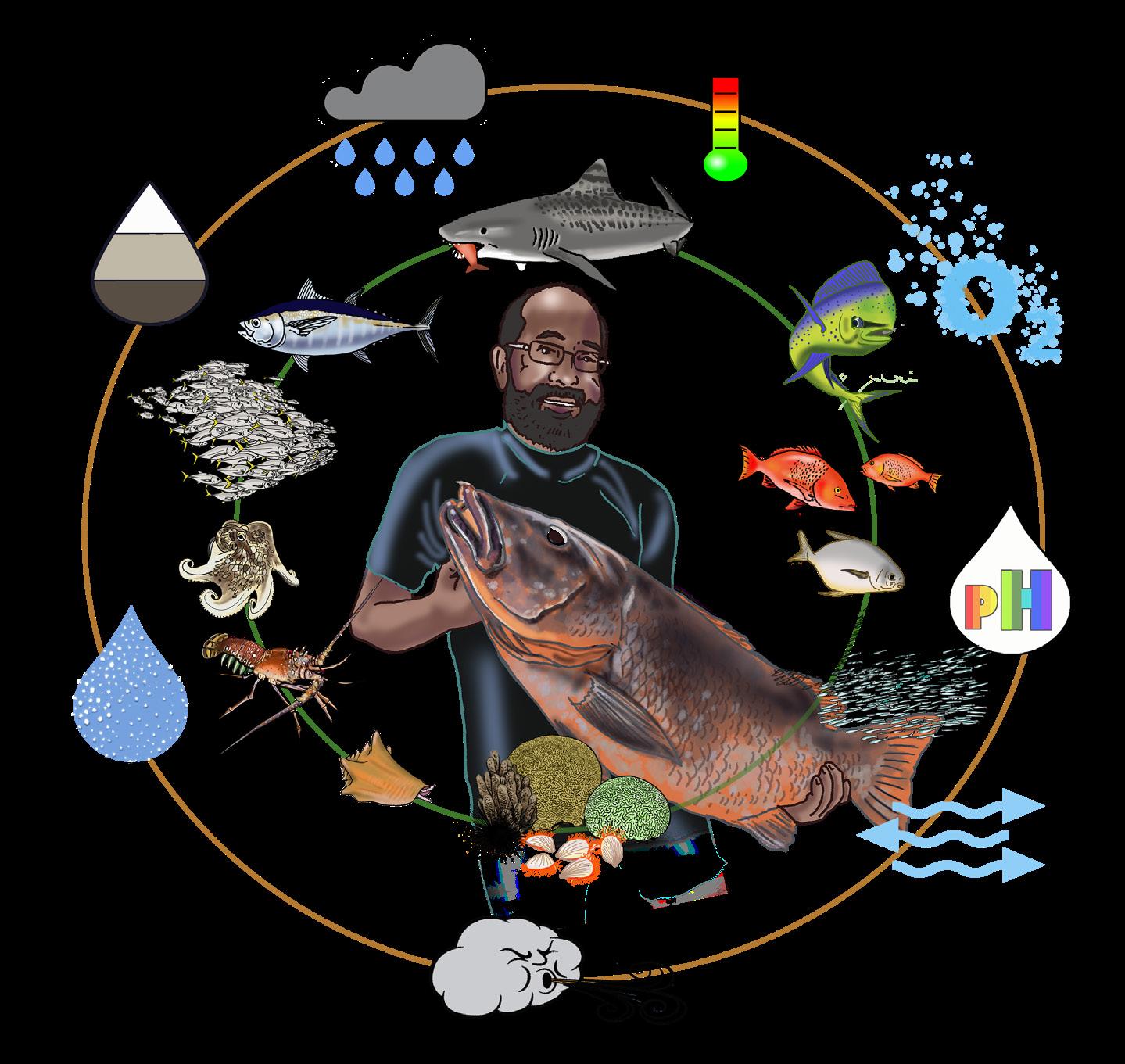
La ilustración muestra cómo los componentes bióticos y abióticos interactúan en el ecosistema marino pesquero. El pescador en el centro es Andrés “Andy” Maldonado, pescador del oeste de Puerto Rico, gran colaborador del CFMC y miembro del Panel Asesor de Extensión y Educación. Ilustración preparada por Paco López para el libro Manejo Pesquero Basado en el Ecosistema. Puedes leer y descargar el libro en https://issuu.com/caribbeanfmc. / The illustration shows how biotic and abiotic components interact in the marine fishery ecosystem. The fisherman in the center is Andrés “Andy” Maldonado, a fisherman from the western coast of Puerto Rico, a great collaborator of the CFMC and member of the Outreach and Education Advisory Panel. Illustration prepared by Paco López for the Ecosystem-Based Fishery Management book. Visit https://issuu.com/caribbeanfmc to read and download the book.
enero 2025
January 2025

Luna nueva/New moon
Cuarto creciente/First quarter
Luna llena/Full moon
Cuarto menguante/Last quarter Día de Año NuevoNew Year’s Day
Día de Martin Luther King, Jr.Martin Luther King, Jr. Day
Enlace para las condiciones marítimas / Link to maritime conditions: www.caricoos.org domingo lunes martes miércoles jueves viernes sábado Sunday Monday Tuesday Wednesday Thursday Friday Saturday 1 2 3 4 5 6 7 8 9 10 11 12 13 14 15 16 17 18 19 20 21 22 23 24 25 26 27 28 29 30 31
LEYENDA/LEGEND
Normas de medición
Measurement Guidelines

3.5 pulgadas (89 mm)
3.5 inches (89 mm)
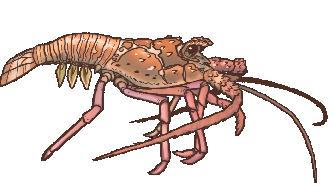
Largo del carapacho (LC) - medida del caparazón desde el comienzo de su cabeza (surco entre los cuernos, sobre los ojos), a lo largo de la línea media del abdomen, hasta el borde de la parte superior del caparazón, excluyendo cualquier membrana translúcida. La langosta se debe desembarcar completa.
Carapace Length (CL) - measurement of the carapace from the anteriormost edge of the groove (between the horns, directly above the eyes), along the middorsal line, to the reaf edge of the top part of the carapace, excluding any translucent membrane. It should be landed intact.
Prohibido capturar langostas con huevas. No harvest of egg bearing females.
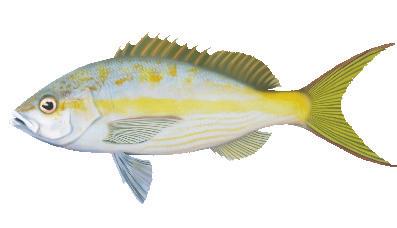
Largo Total (LT) - distancia en línea recta, desde la punta del hocico hasta la punta de la cola (aleta caudal), excluyendo cualquier filamento caudal, mientras el pez está acostado de lado. La boca del pez puede estar cerrada y/o apretada para obtener la mejor medición general.
Total Length (TL) - straight line distance from the tip of the snout to the tip of the tail (caudal fin), excluding any caudal filament, while the fish is lying on its side. The mouth of the fish may be closed and/or the tail may be squeezed together to give the greatest overall measurement.
9 pulgadas de Largo Total 9 inches Total Length

Grosor del labio: 3/8 pulgadas
Lip Thickness: 3/8 inch
El límite de tamaño mínimo es de 9 pulgadas (22.9 cm) de largo desde la punta de la aguja hasta el extremo distal de la concha, o 3/8 de pulgada (9.5 mm) de grosor del labio en su punto más ancho. El carrucho debe llegar a puerto con carne y concha intactas.
The minum size limit of either 9 inch in length from the tip of the spire to the distal end of the shell, or 3/8 de pulgada in lip width at its widest point. The queen conch must be landed with meat and shell intact.
Para vedas, vea las páginas 7-9.
For seasonal closures, go to pages 7-9.

Largo de horquilla (LH) - distancia en línea recta, desde la punta del hocico hasta el borde central de la aleta caudal.
Fork Length (FL) - straight line distance from the tip of the head (snout) to the rear center edge of the tail (caudal fin).


CFMC - Caribbean Fishery Management Council
Carlos Farchette - Presidente del Consejo / Council Chair
Vanessa Ramírez Pérez - Vicepresidenta del Consejo / Council Vice-chair
Personal del Consejo / Council Staff
Miguel A. Rolón Delgado - Director Ejecutivo / Executive Director
Diana T. Martinó Nogueras - Asistente del Director Ejecutivo y Coordinadora de Extensión y Educación / Executive Director Assistant and Outreach and Education Coordinator
Graciela García-Moliner - Coordinadora de Planes de Administración Pesquera y Especialista en Hábitats / FMP and Habitat Specialist
Liajay Rivera García - Asistente Técnica para FMP y EBFM / FMP and EBFM Technical Assistant
María de los Á. Irizarry Seda - Oficial Administrativo / Fiscal Officer
Vivian Ruiz Camacho - Técnica de Contabilidad / Accounting Technician
Kiara M. Matías Rojas - Asistente Administrativa / Administrative Assistant
Luz González Sánchez - Asistente del Oficial Administrativo / Assistant to the Fiscal Officer
Cristina D. Olán Martínez - Contratista / Contractor (Manejadora de redes sociales / Social Media Manager)
Alberto Fort Rivera - Contratista / Contractor (Técnico de audio y video / Audio & Video Technician)
Tania Capote González - Contratista / Contractor (Transcripciones de las reuniones del CFMC / Transcriptions of the CFMC Meetings)
Rosana López Muñoz - Contratista / Contractor (Artista Gráfica / Graphic Designer)
Reconocimientos / Acknowledgements
Concepto y diseño gráfico /Graphic design and layout: Natalia Perdomo Ramírez; Rosana López Muñoz
Ilustraciones de los peces / Fish Illustrations: Paco López Mújica
Redacción / Writing: Álida Ortiz Sotomayor; Cristina D. Olán Martínez
Edición /Editing: Miguel A. Rolón Delgado; Diana T. Martinó Nogueras; Cristina D. Olán Martínez
Oficinas de apoyo a pescadores Fishers Support Offices

CFMC
www.caribbeanfmc.com
Dirección/Address
270 Ave. Muñoz Rivera Suite 401 San Juan, PR 00918-1903
Teléfono/Telephone (787) 766 - 5926

PRSG www.seagrantpr.org
Dirección/Address UPR-RUM Call Box 9000 Mayagüez, PR 00681 - 9000
Teléfonos/Telephones (787) 832 - 3585 (787) 832 - 8045
NOAA www.noaa.gov
Dirección/Address 1401 Constitution Avenue, NW Room 5128 Washington, DC 20230
Teléfono/Telephone (202) 482 - 6090
USCG www.uscg.mil
Dirección/Address #5 Calle La Puntilla Final San Juan, PR 00901-1800
Teléfono/Telephone (787) 289 - 2041
NOAA - Pesquerías / Fisheries www.noaa.gov/fisheries
NOAA Southeast Fisheries Science Center (SEFSC) www.sefsc.noaa.gov
Highly Migratory Species
https://www.fisheries.noaa. gov/topic/atlantic-highlymigratory-species
Condiciones marítimas / Maritime conditions www.caricoos.org
EPA www.epa.gov
FDA www.fda.gov
USDA www.usda.gov
USVI - DFW http://dpnr.vi.gov/fish-andwildlife
St. Thomas
Dirección/Address 6291 Estate Nazareth St. Thomas, VI 00802
Teléfono/Telephone (340) 774-3320
Fax (340) 775-3972
St. Croix
Dirección/Address 45 Mars Hill Complex St. Croix, VI 00840
Teléfonos/Telephones (340) 773-1082 (340) 772-1955
Fax (340) 772-3227
Oficina del Comisionado de Navegación / Navigation Commissioner
Teléfono/Telephone
(787) 999 - 2200
Exts. 5154, 5147, 5125
Laboratorio de Investigaciones Pesqueras / Fisheries Research Laboratory
Teléfono/Telephone
(787) 833-2025
(787) 230-4950
Negociado de Pesca y Vida Silvestre / Fish and Wildlife Bureau
Teléfono/Telephone
(787) 999-2200 Exts. 2489, 2886
Cuerpo de Vigilantes / Rangers Corps
Teléfono/Telephone (787) 999-2200 Exts. 2910, 2911
USVI - DPNR www.dpnr.vi.gov
St. Thomas
Dirección/Address Department of Planning and Natural Resources
Cyril E. King Airport Terminal Building, 2nd Fl. St. Thomas, VI 00802
Teléfono/Telephone (340) 774-3320
St. Croix
Dirección/Address
Department of Planning and Natural Resources 45 Estate Mars Hill Frederiksted, VI 00840
Teléfono/Telephone (340) 773-1082
PR - DA
www.agricultura.pr
Dirección/Address Apartado 10163
San Juan, PR 00909
Teléfono/Telephone (787) 721-2120
AMP/MPA - Área Marina Protegida Marine Protected Area
CFMC - Consejo de Administración Pesquera del Caribe Caribbean Fishery Management Council
DA - Departamento de Agricultura de Puerto Rico Puerto Rico Department of Agriculture
DFW - División de Pesca y Vida Silvestre (USVI) USVI Division of Fish and Wildlife
DPNR - Departamento de Planificación y Recursos Naturales (USVI) USVI Department of Planning and Natural Resources
DRNA - Departamento de Recursos Naturales y Ambientales de Puerto Rico / Puerto Rico Department of Natural and Environmental Resources
EBFM - Manejo Pesquero Basado en Ecosistema / Ecosystem-based Fishery Management
EPA - Agencia de Protección Ambiental de los Estados Unidos US Environmental Protection Agency
FDA - Administración de Alimentos y Drogas de los Estados Unidos / US Food and Drug Administration
FMP - Planes de Manejo Pesquero Fishery Management Plans
IBFMP - Planes de Manejo Pesquero Basados en Isla Island-Based Fishery Management Plan
NOAA - Administración Nacional del Océano y de la Atmósfera National Oceanic and Atmospheric Administration
PR - Estado Libre Asociado de Puerto Rico Commonwealth of Puerto Rico
PRSG - Programa Sea Grant Puerto Rico Puerto Rico Sea Grant Program
USCG - Guardia Costera de los Estados Unidos US Coast Guard
USDA - Departamento de Agricultura de los Estados Unidos US Department of Agriculture
USVI - Territorio de las Islas Vírgenes Estadounidenses Territory of the United States Virgin Islands
ZEE/EEZ - Zona Económica Exclusiva Exclusive Economic Zone


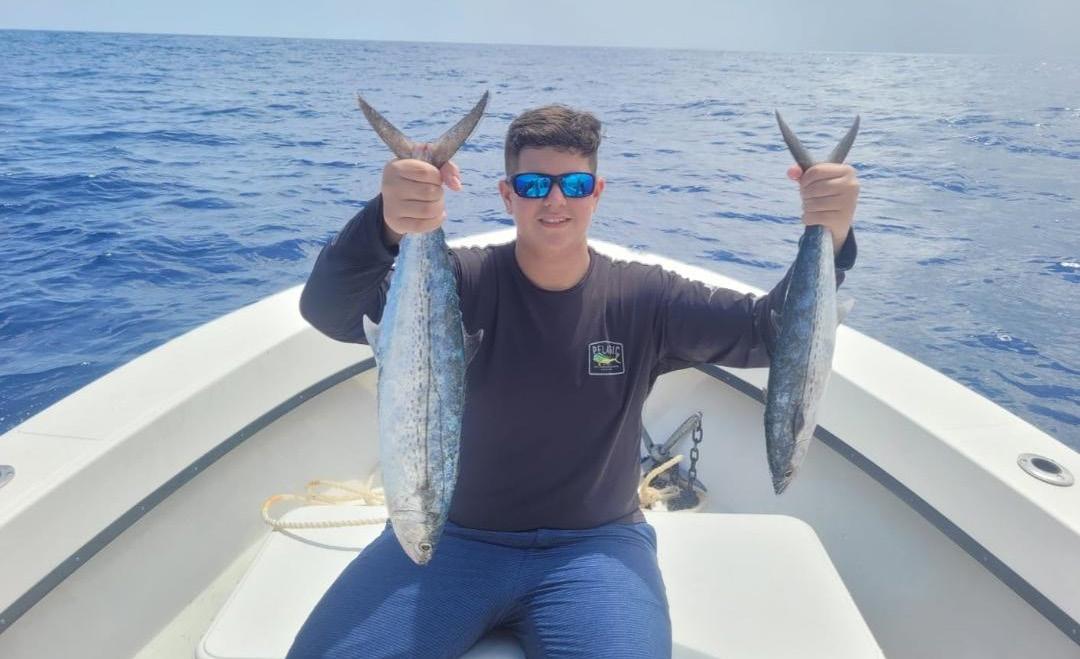
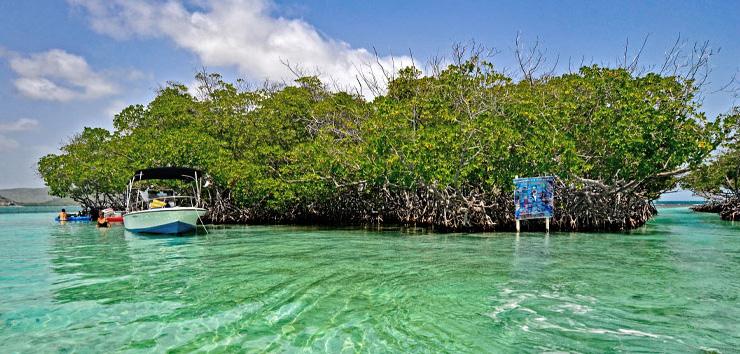

Acrónimos/Acronyms
Enzo Noah Abrams. Foto/Photo: NPS.gov
La Parguera. Foto/Photo: puertoricotravelguide.com
VI Coral Reef National Monument. Foto/Photo: Susanna Pershern, NPS.gov







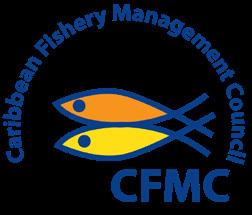
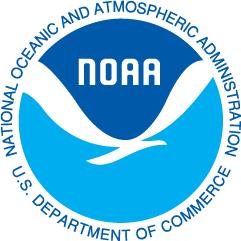
Este calendario fue sufragado por • This calendar was funded by: NA20NMF4410008 Caribbean Fishery Management Council Escanea el QR Code para acceder a / Scan the QR Code to access www.caribbeanfmc.com








































































 Los pargos aquí mostrados forman parte de las 13 especies de pargos incluidas en el IBFMP de Puerto Rico. / Snappers shown in this page are part of 13 species of snappers included in the Puerto Rico IBFMP.
Los pargos aquí mostrados forman parte de las 13 especies de pargos incluidas en el IBFMP de Puerto Rico. / Snappers shown in this page are part of 13 species of snappers included in the Puerto Rico IBFMP.























 El IBFMP de St. Thomas/St. John incluye 3 especies de peces cirujano y 3 especies de peces ángel. El pez cirujano o médico y el pez ángel gris forman parte de estos abastos incluidos en el plan. / St. Thomas/St. John IBFMP includes 3 species of surgeonfish and 3 species of angelfish. The Doctorfish or Surgeonfish and the Gray angelfish are part of these stocks included in the plan.
El IBFMP de St. Thomas/St. John incluye 3 especies de peces cirujano y 3 especies de peces ángel. El pez cirujano o médico y el pez ángel gris forman parte de estos abastos incluidos en el plan. / St. Thomas/St. John IBFMP includes 3 species of surgeonfish and 3 species of angelfish. The Doctorfish or Surgeonfish and the Gray angelfish are part of these stocks included in the plan.





































